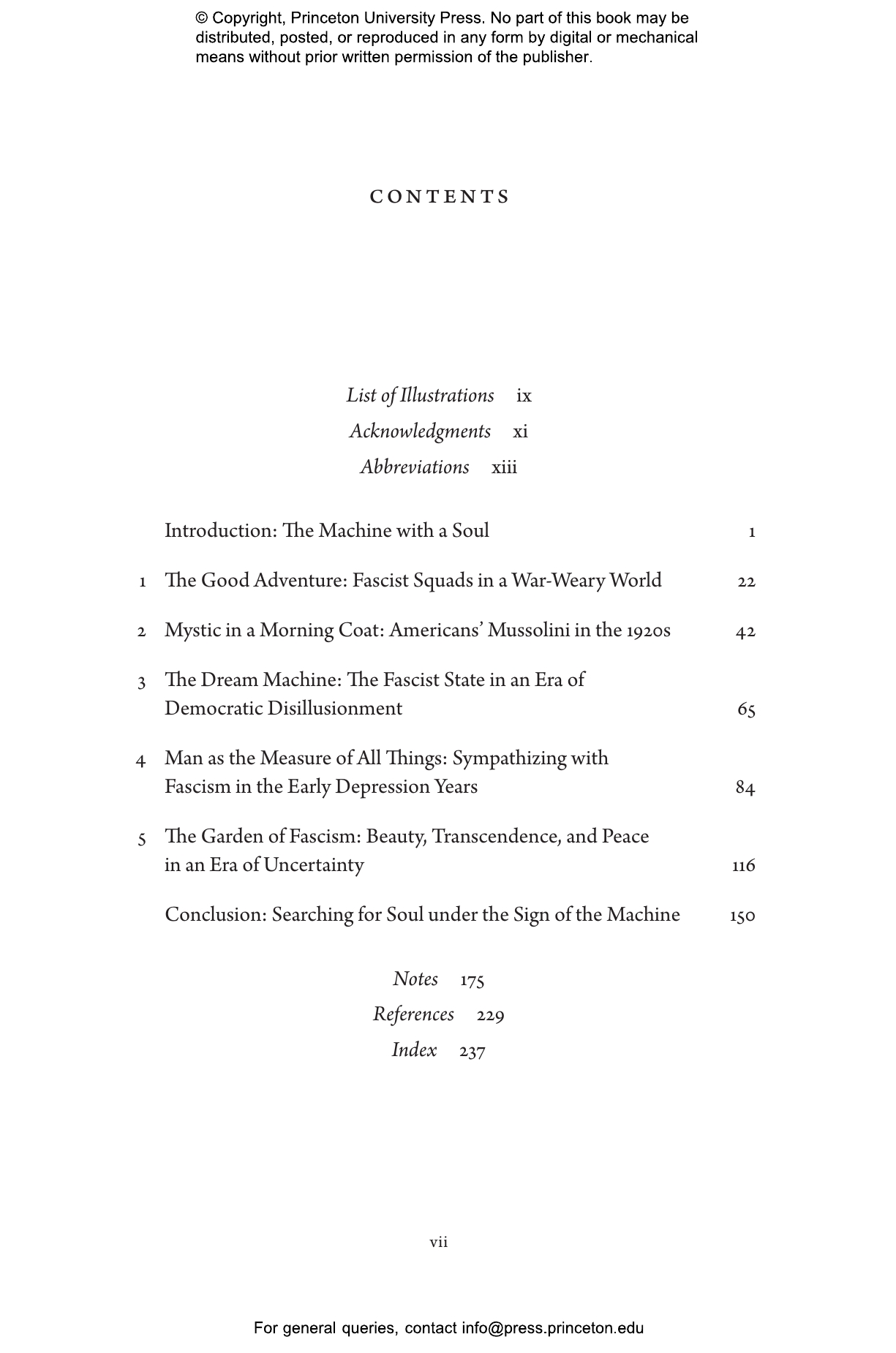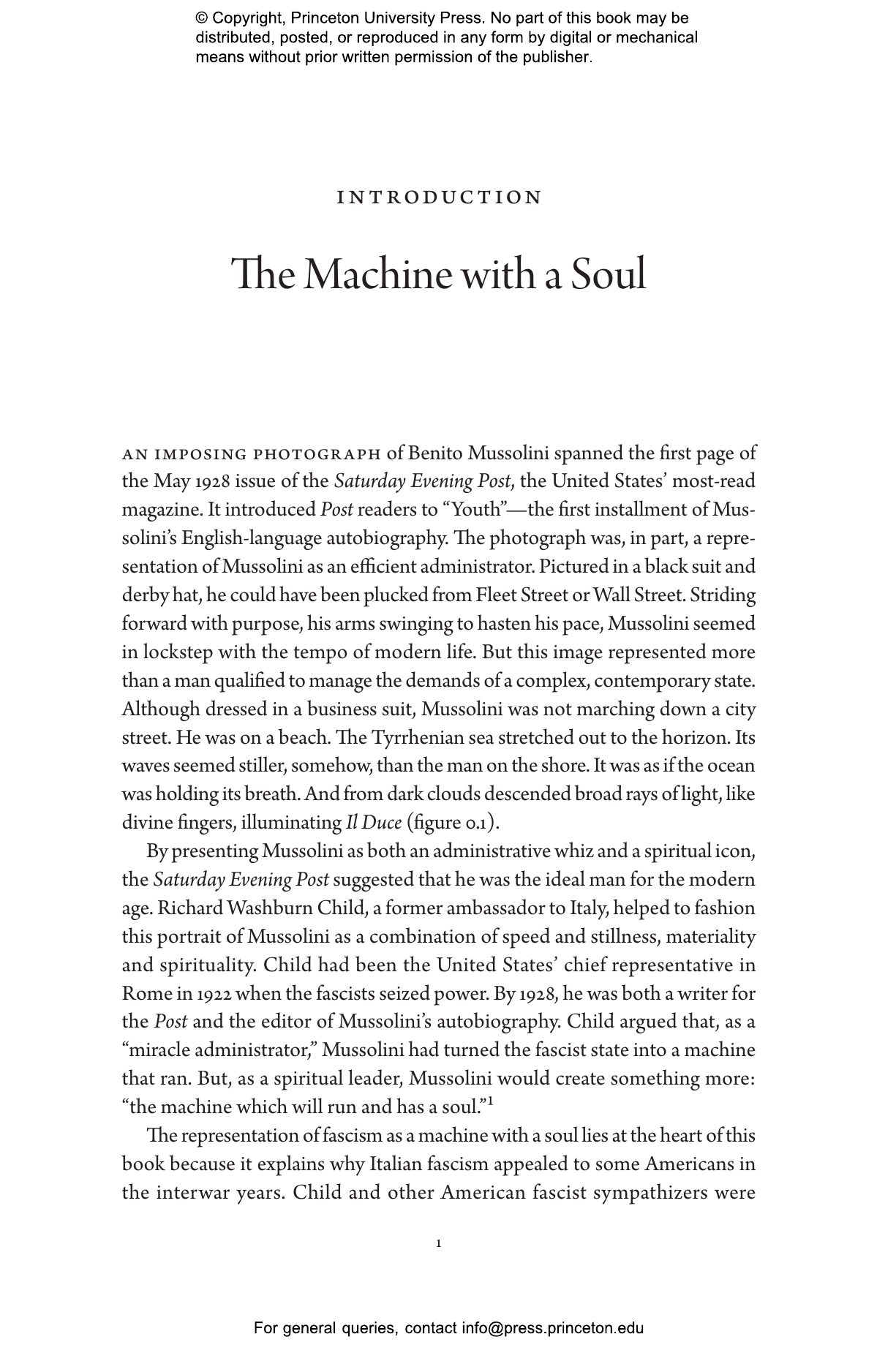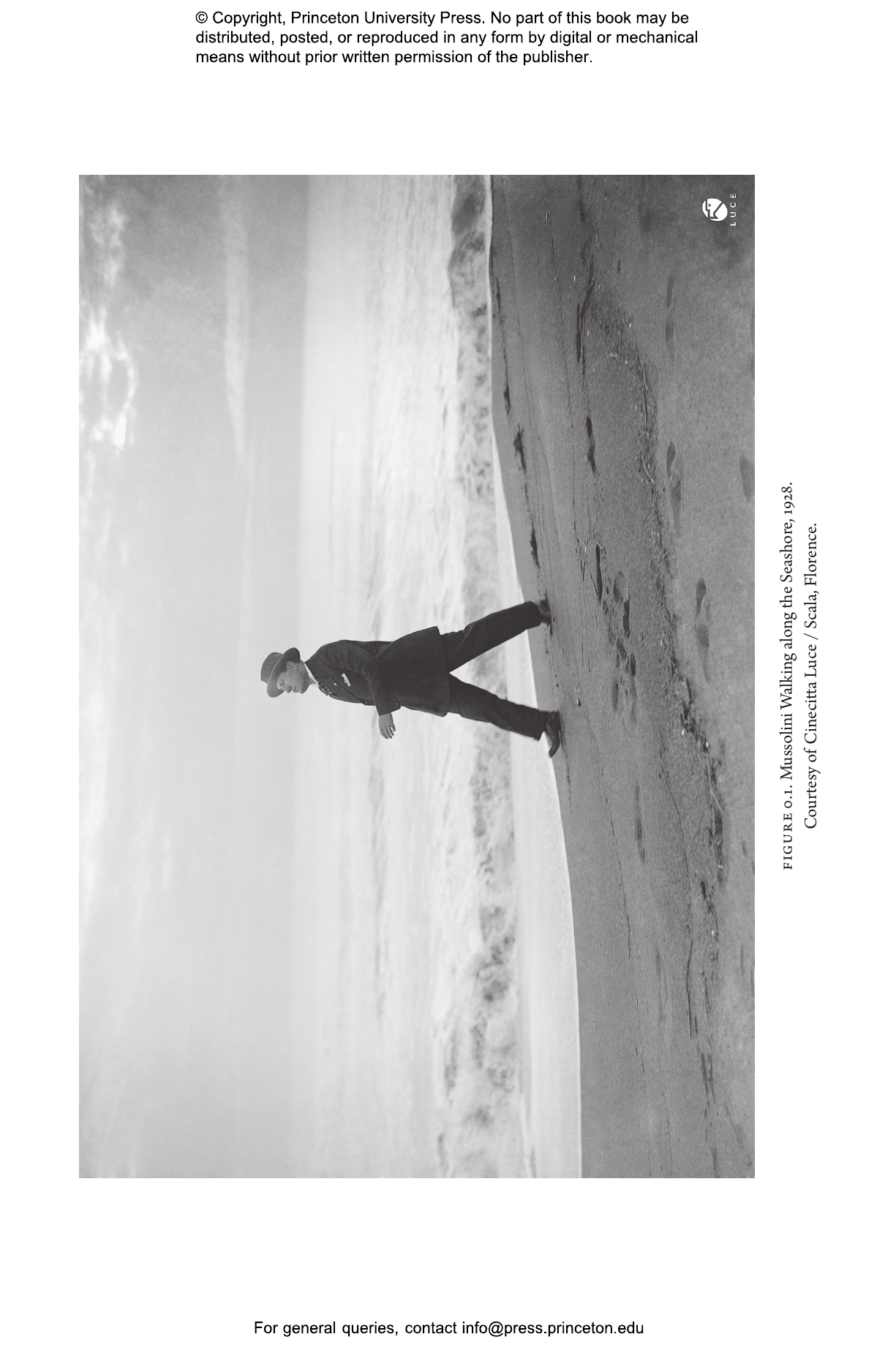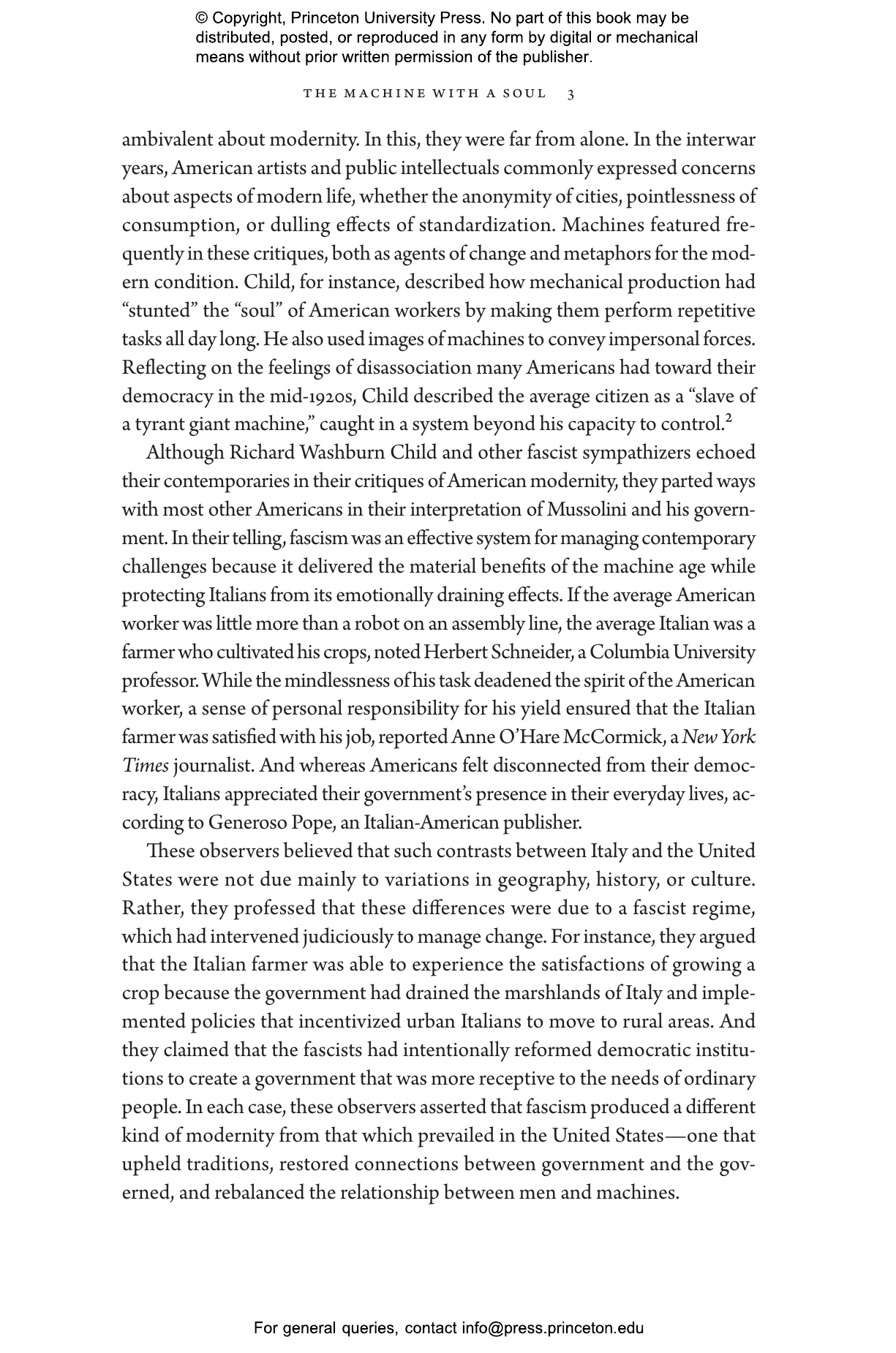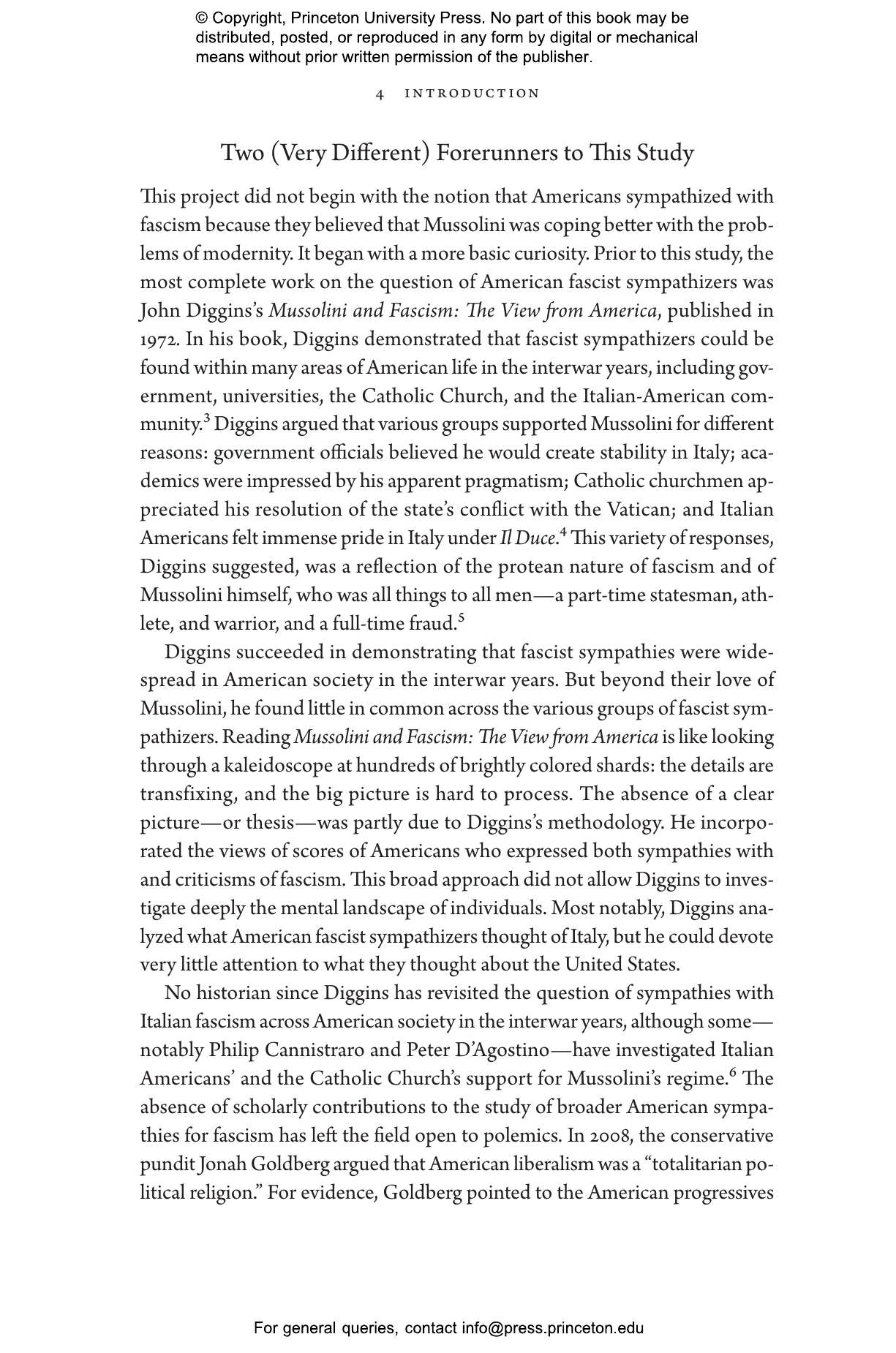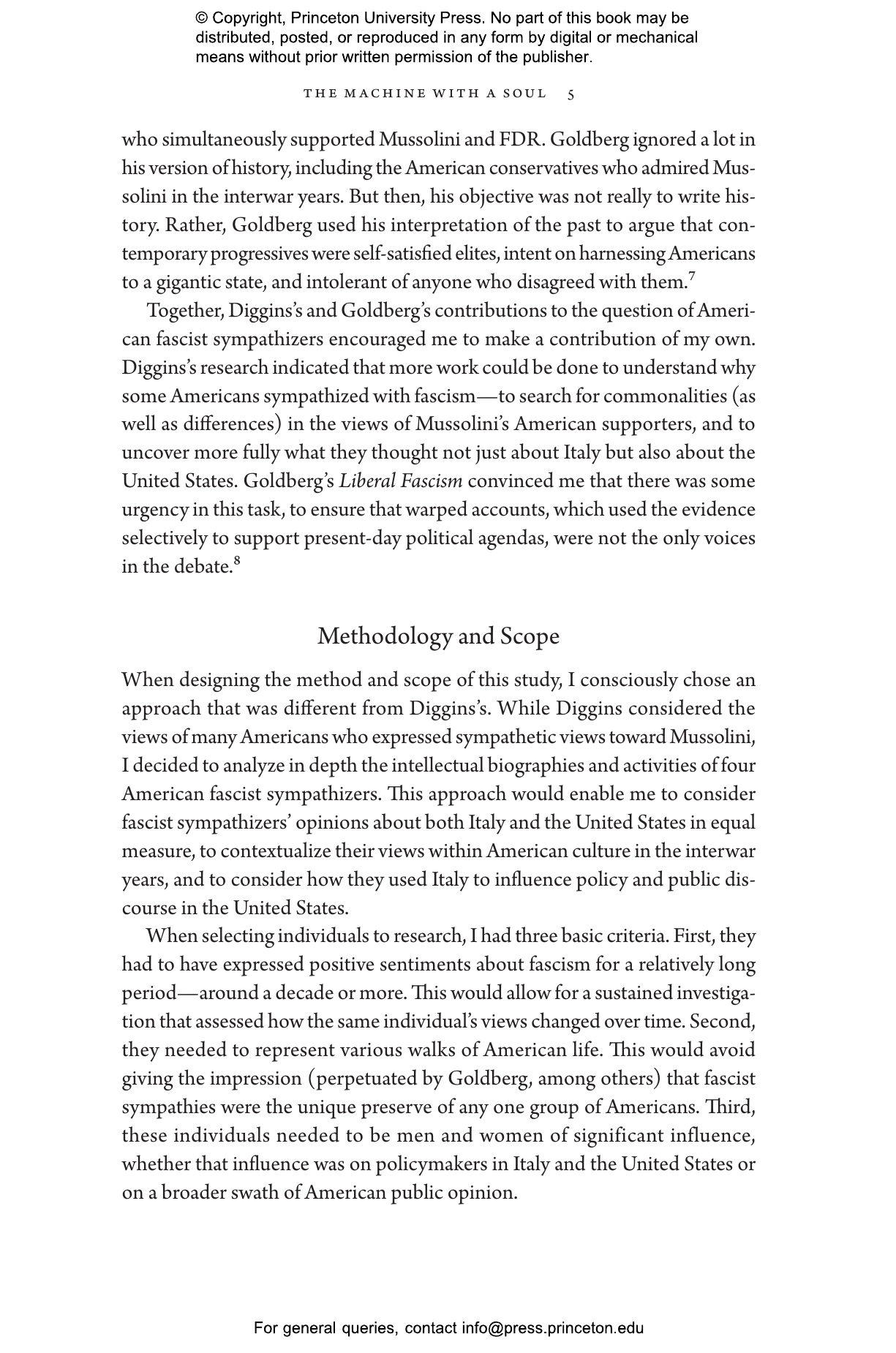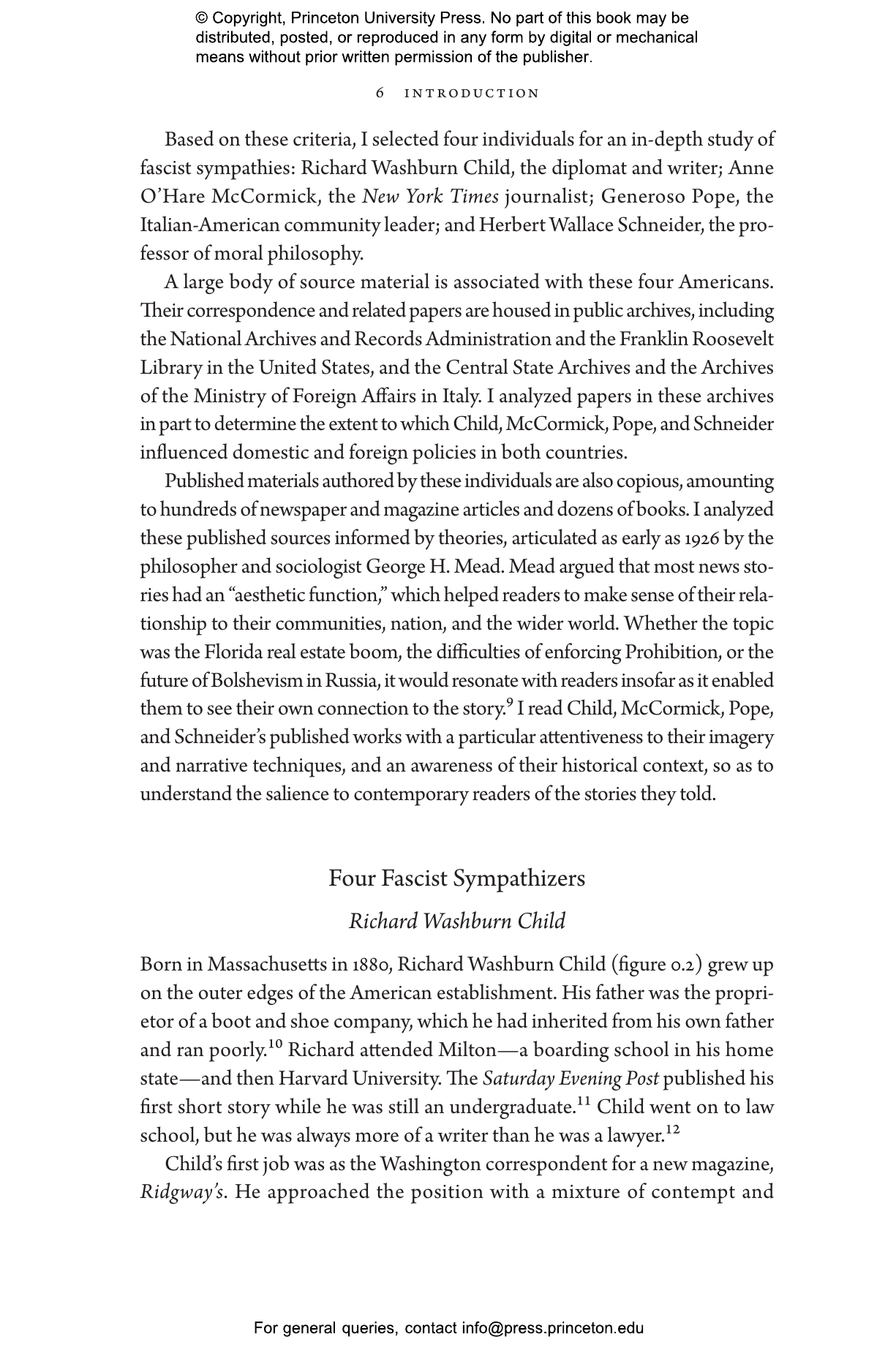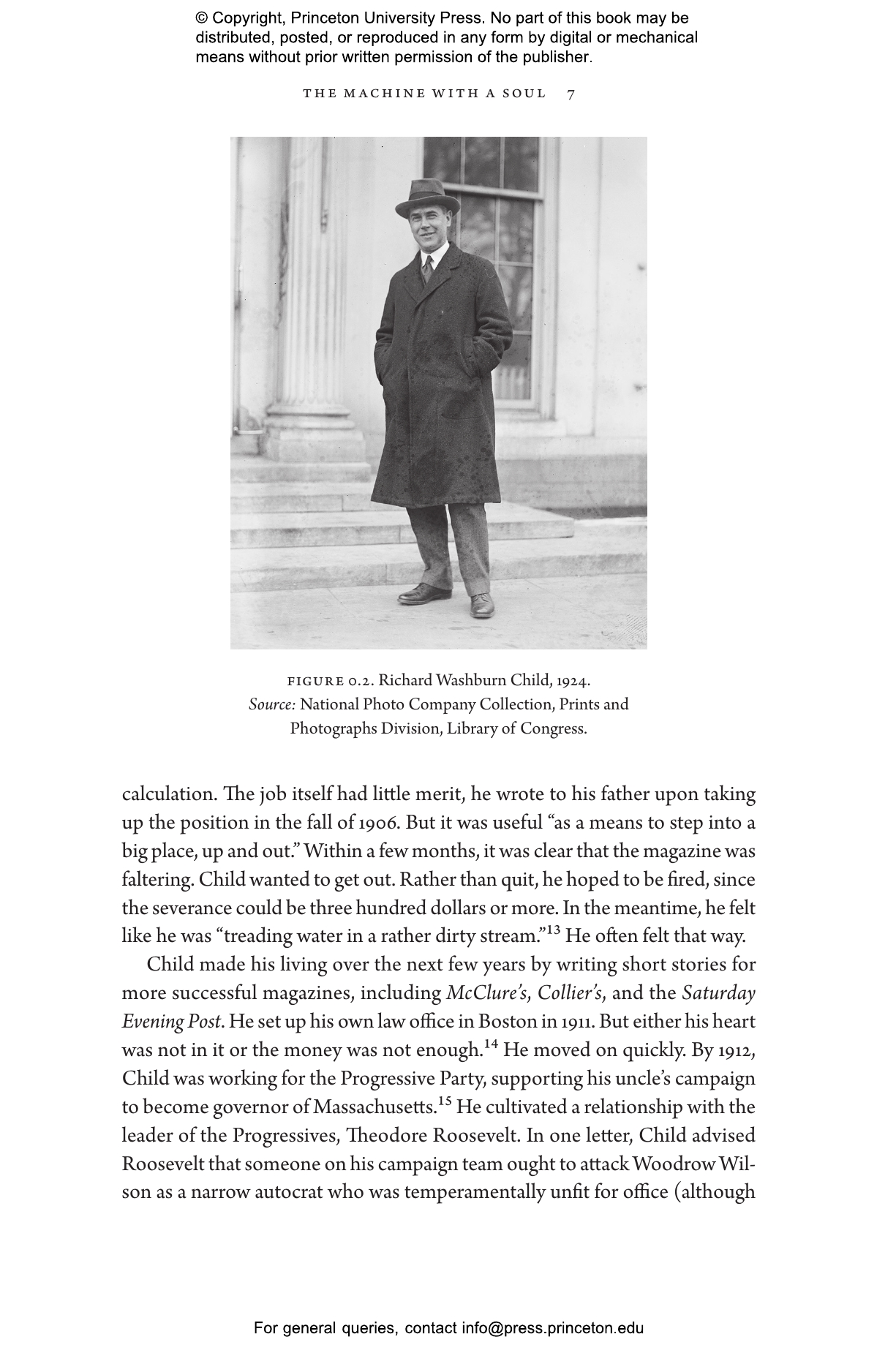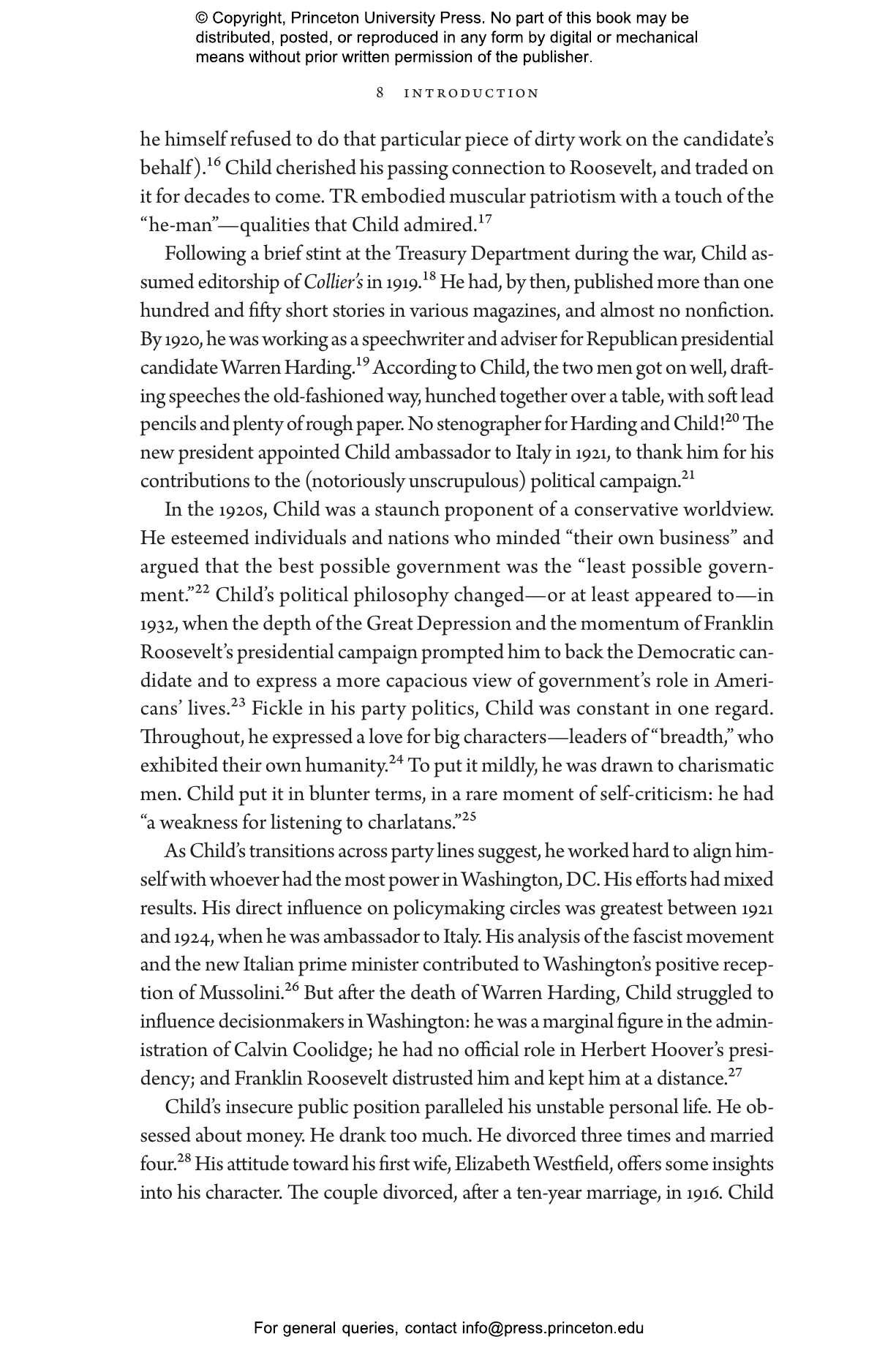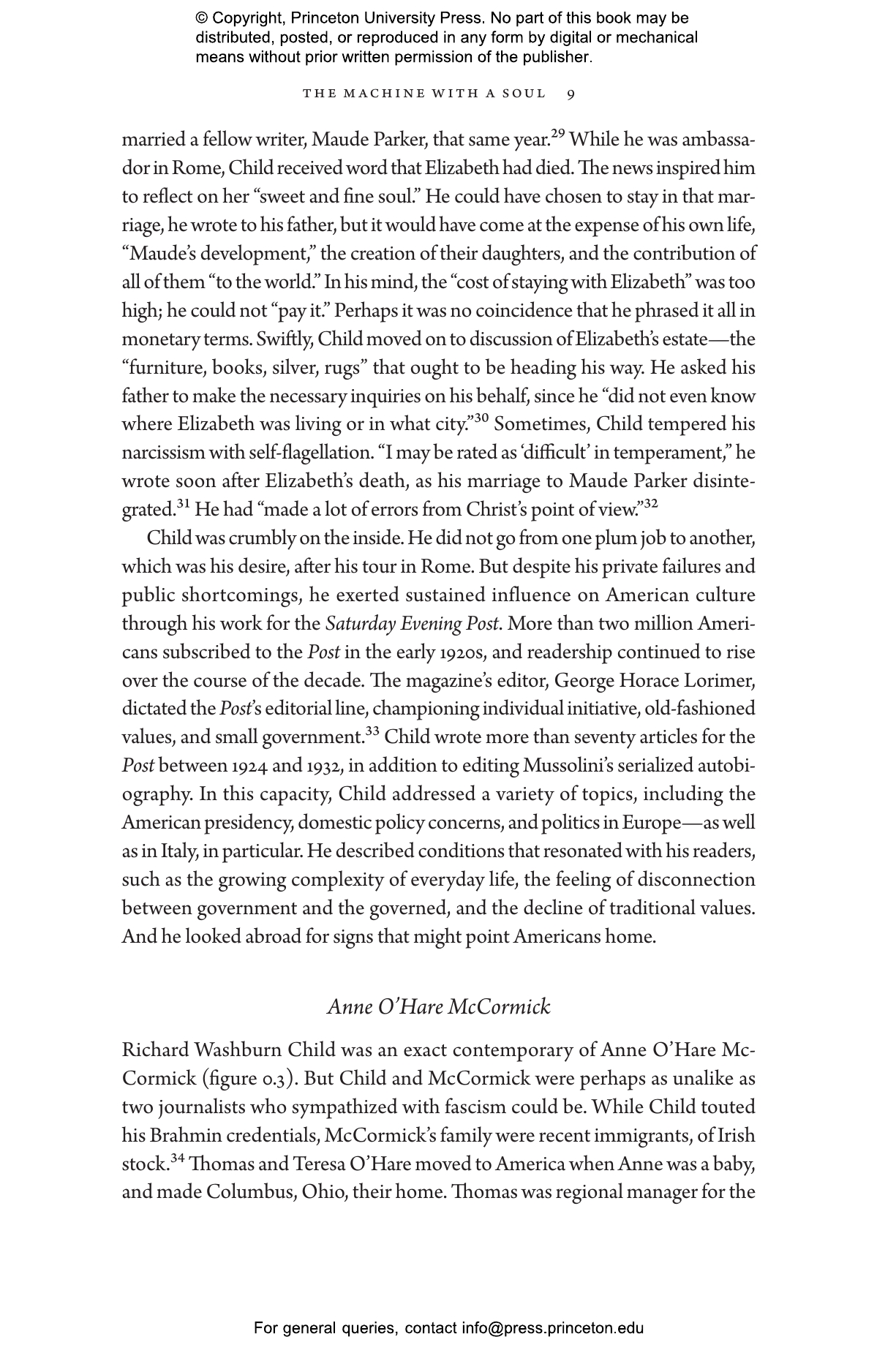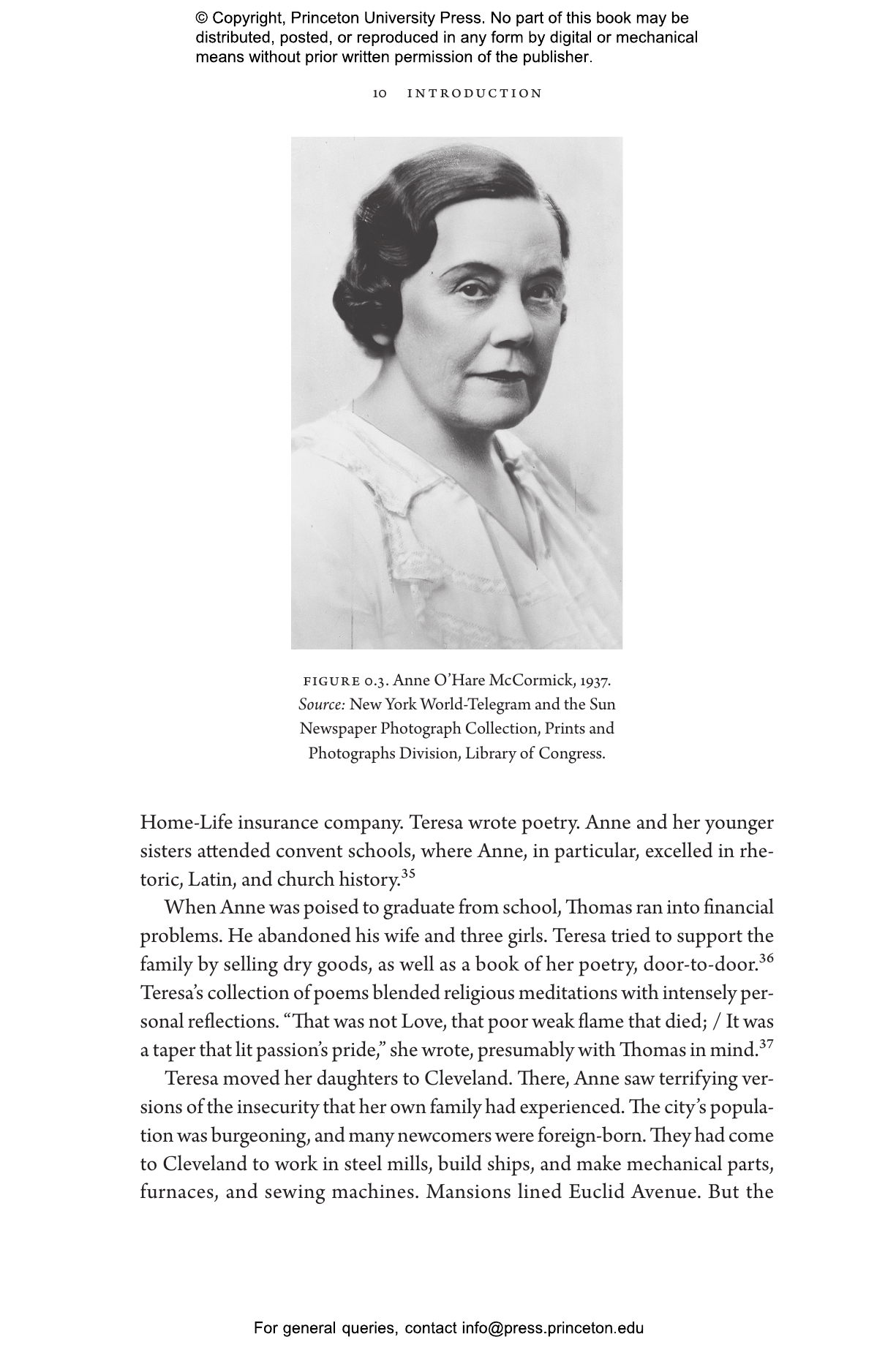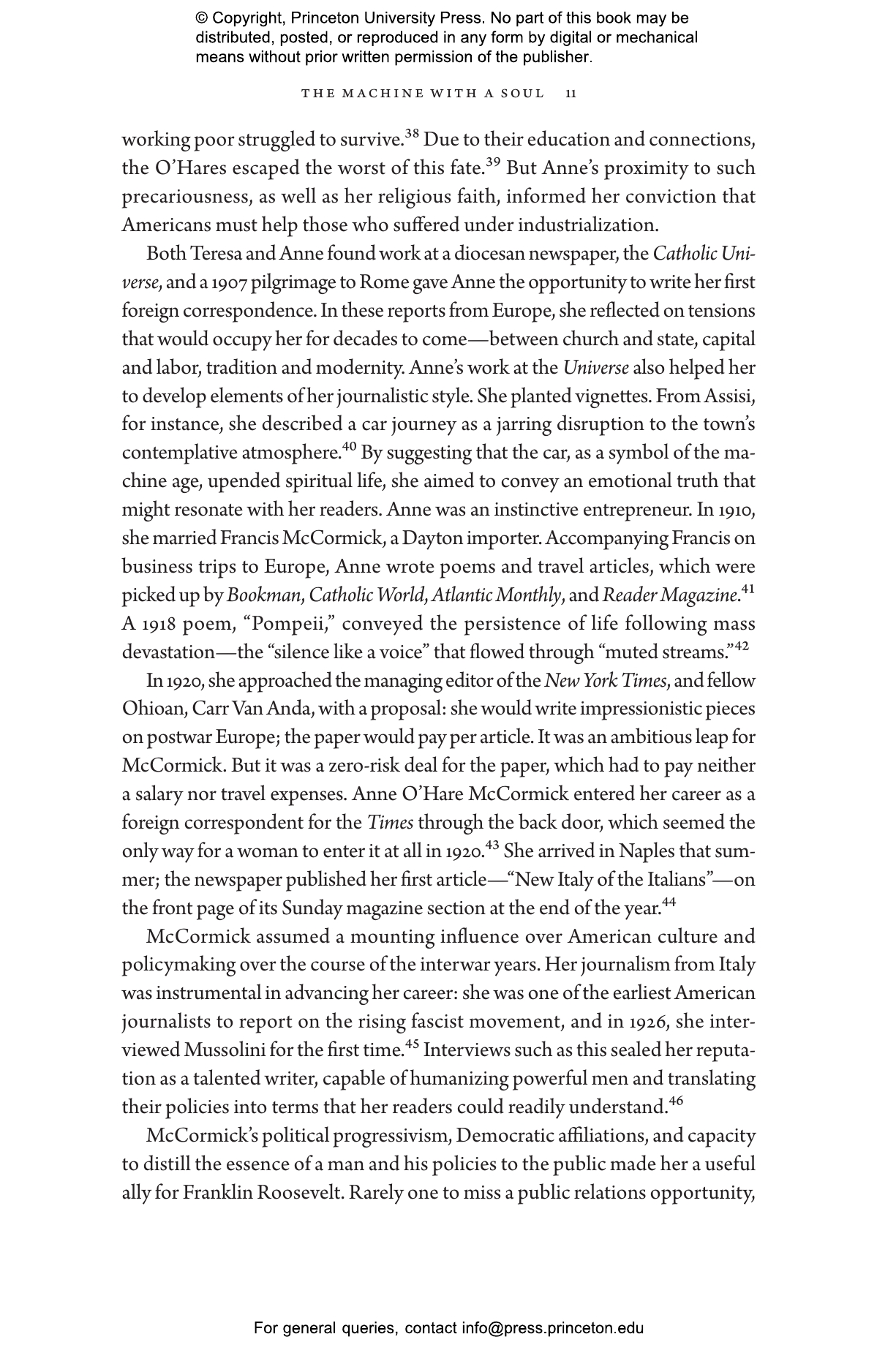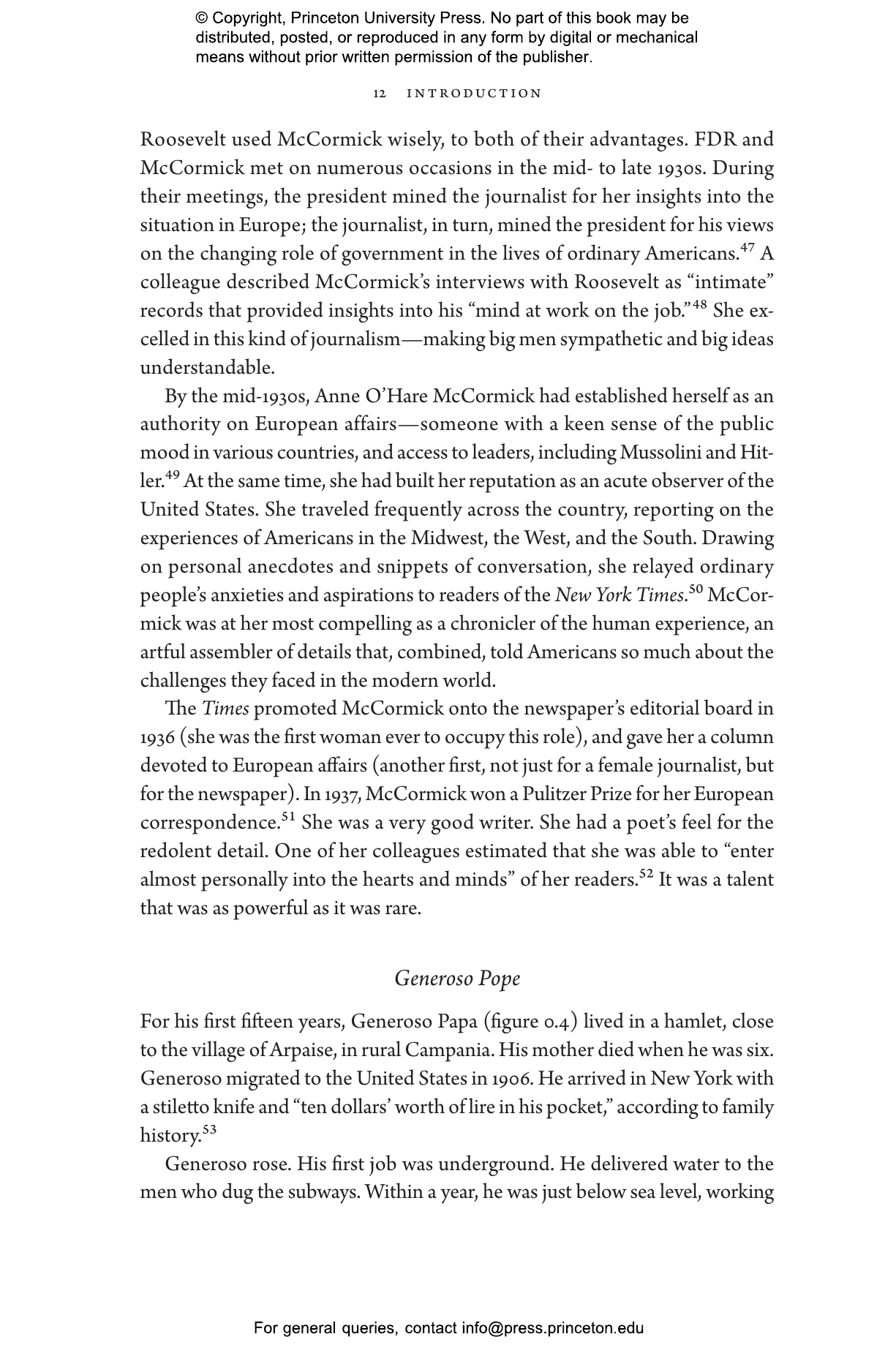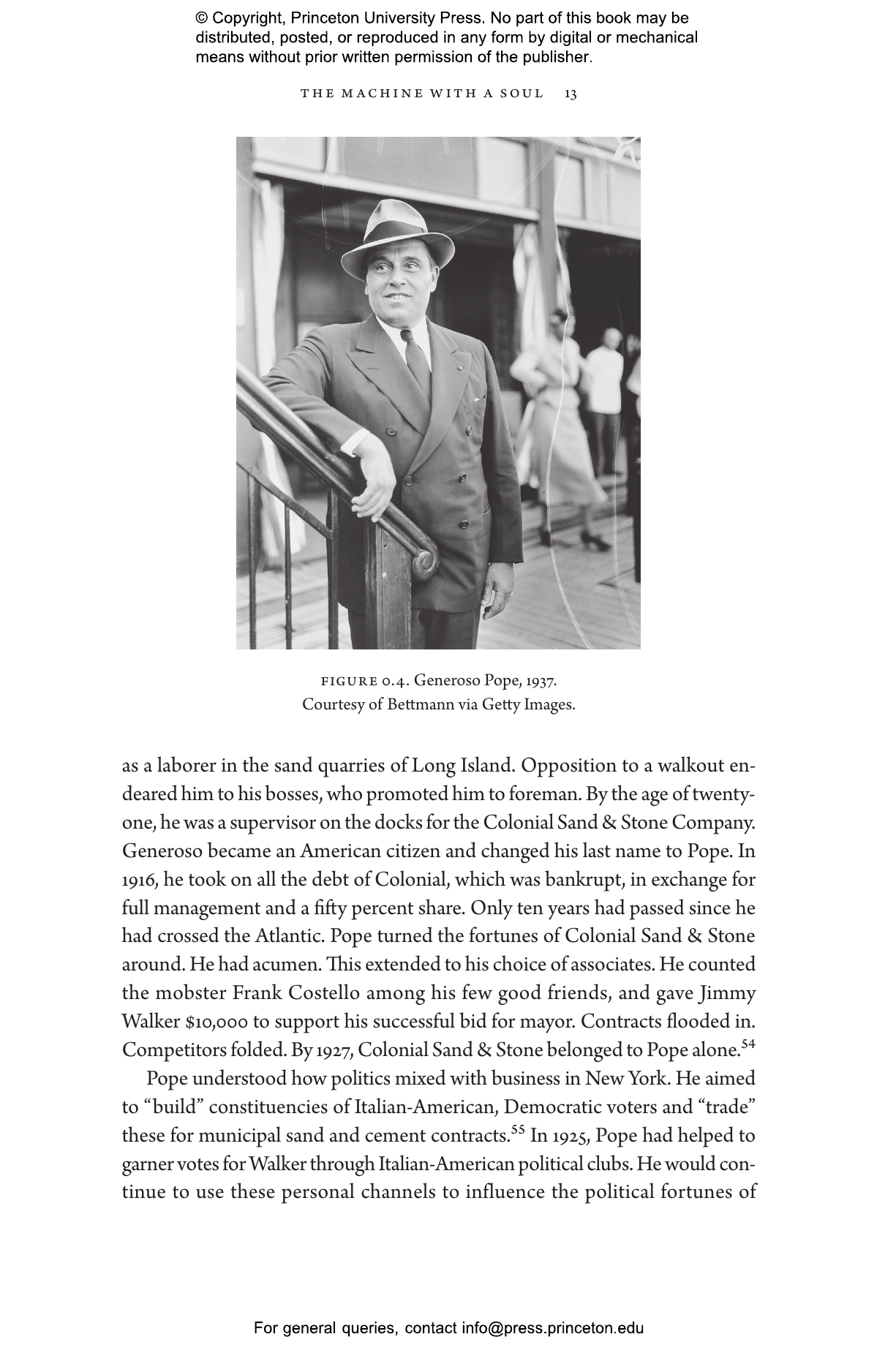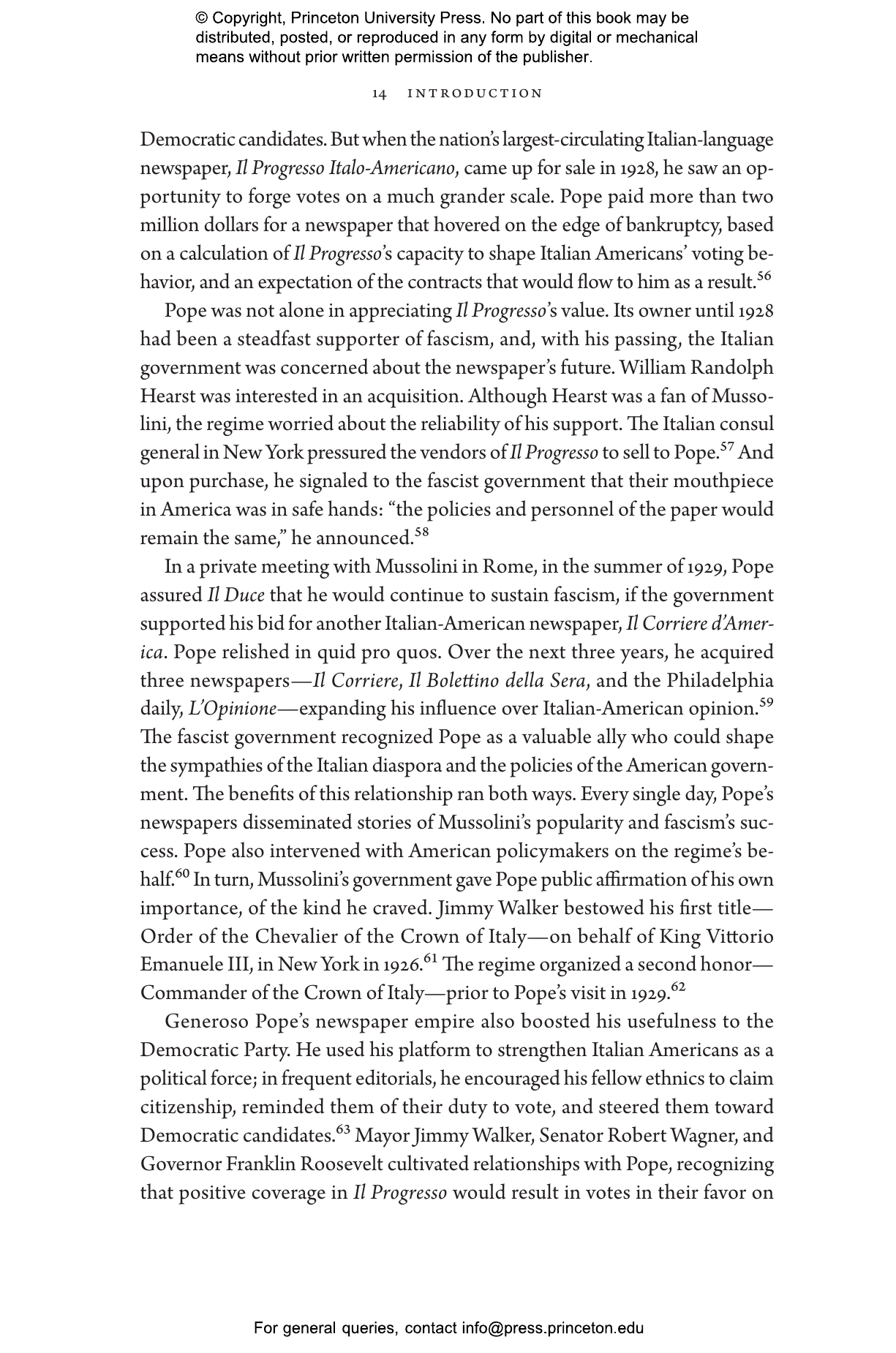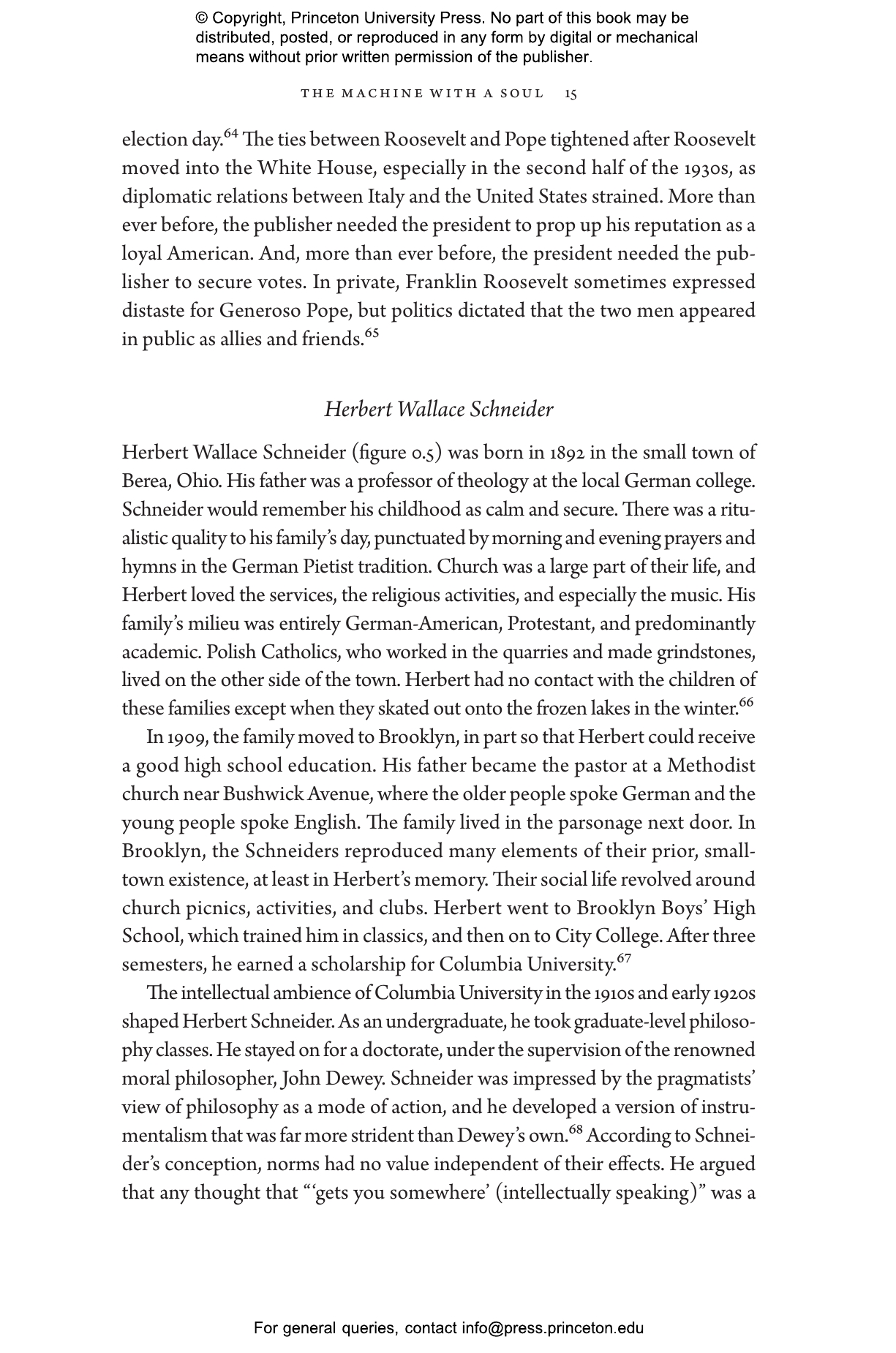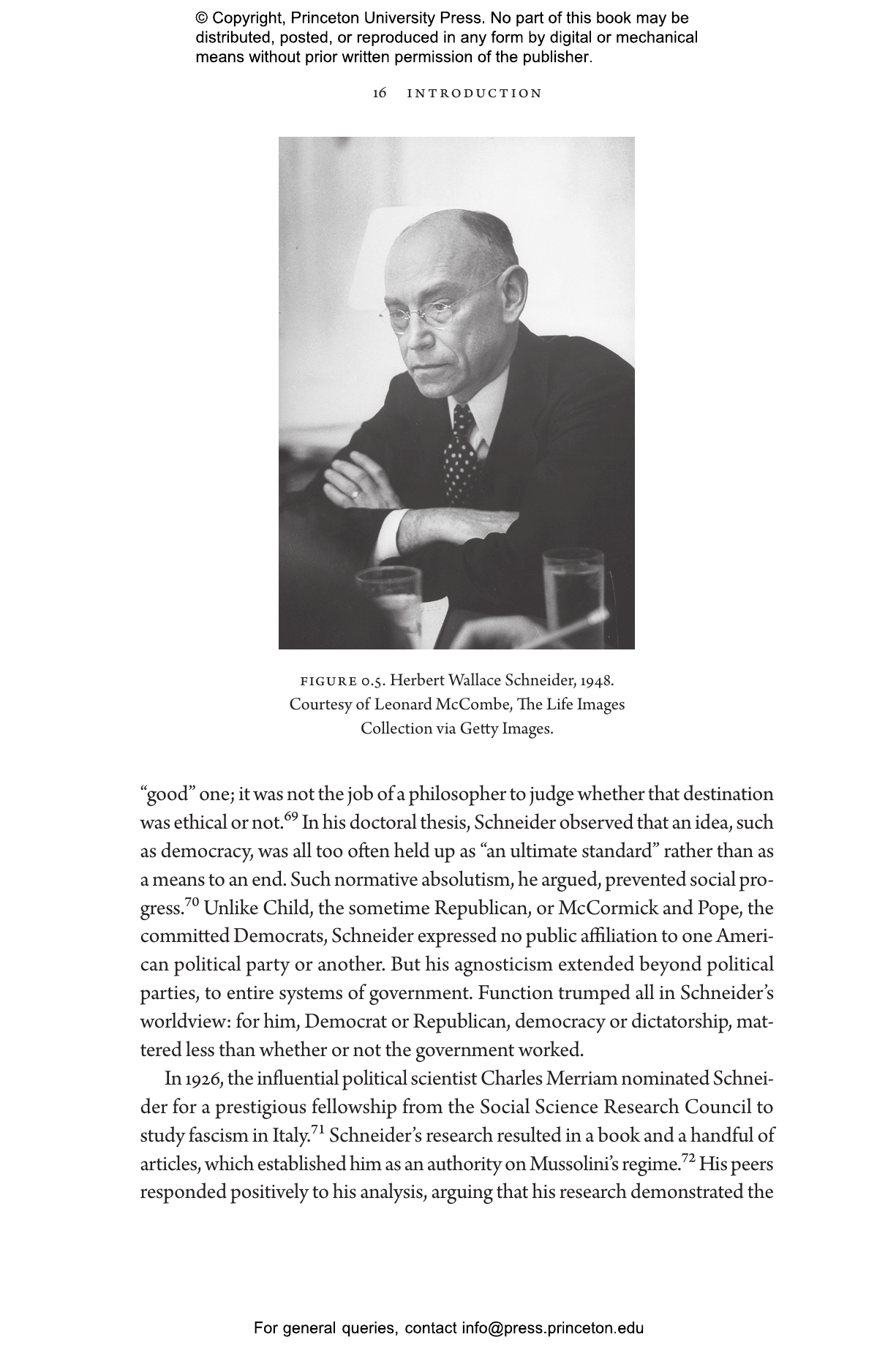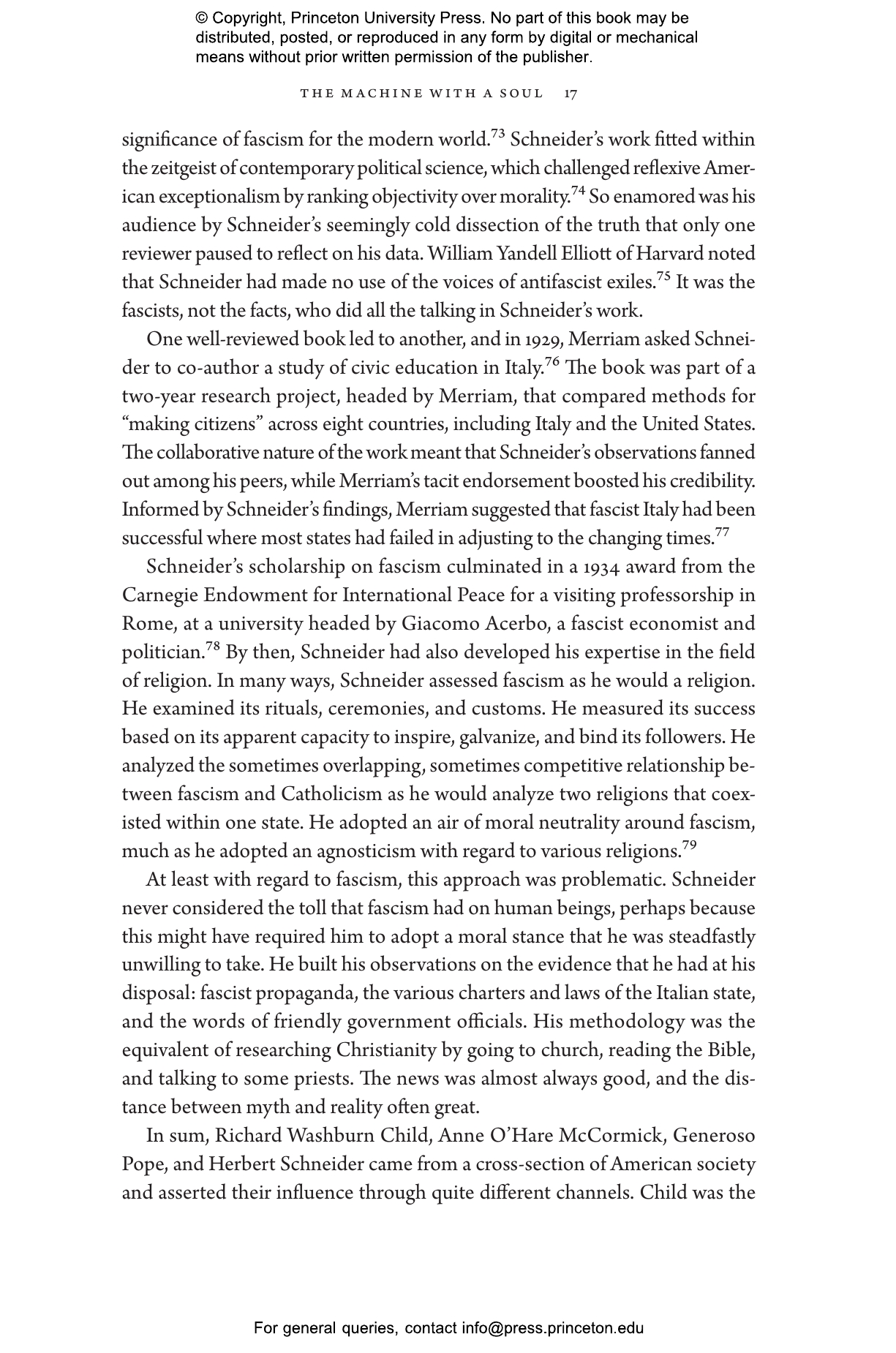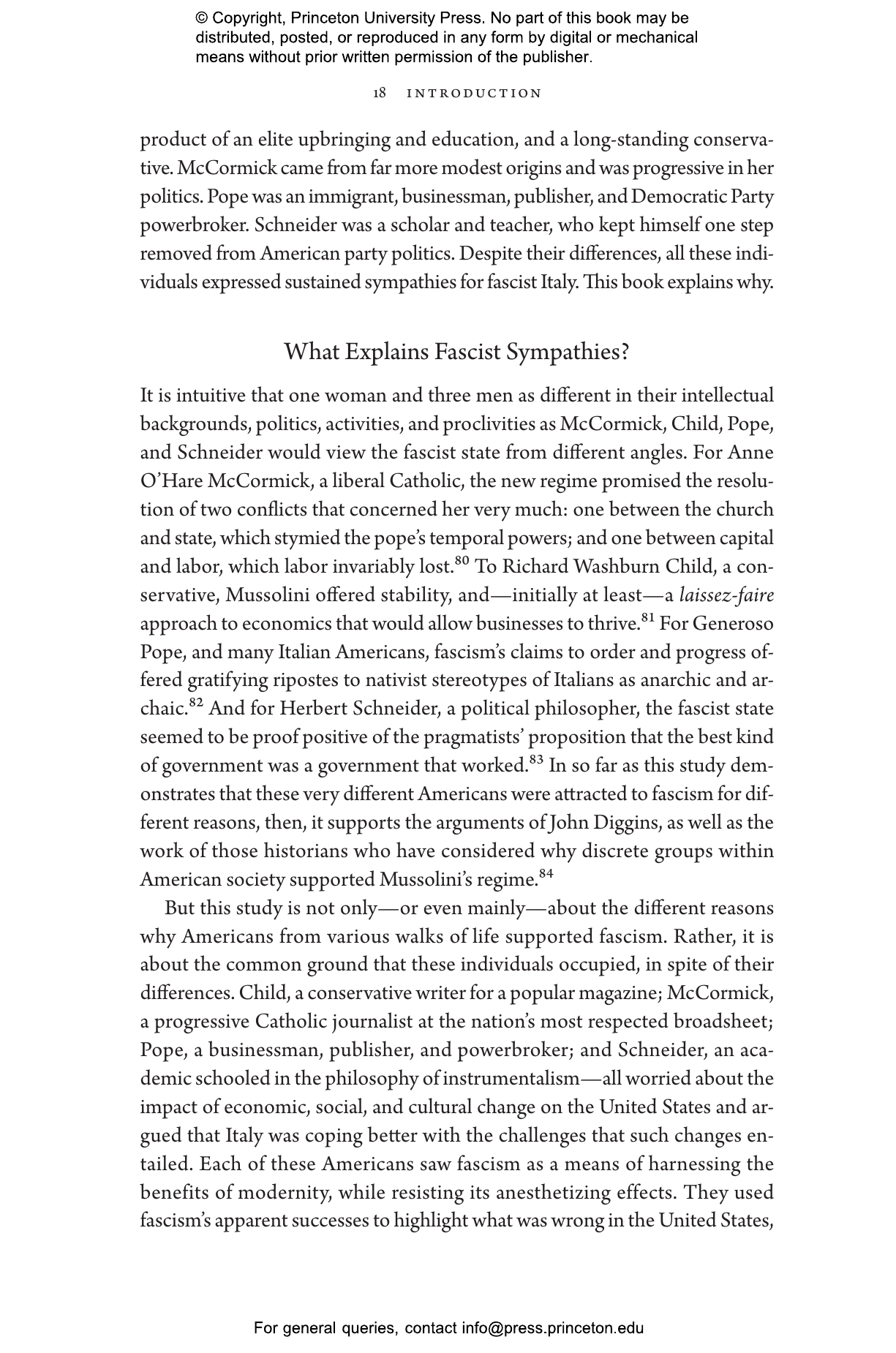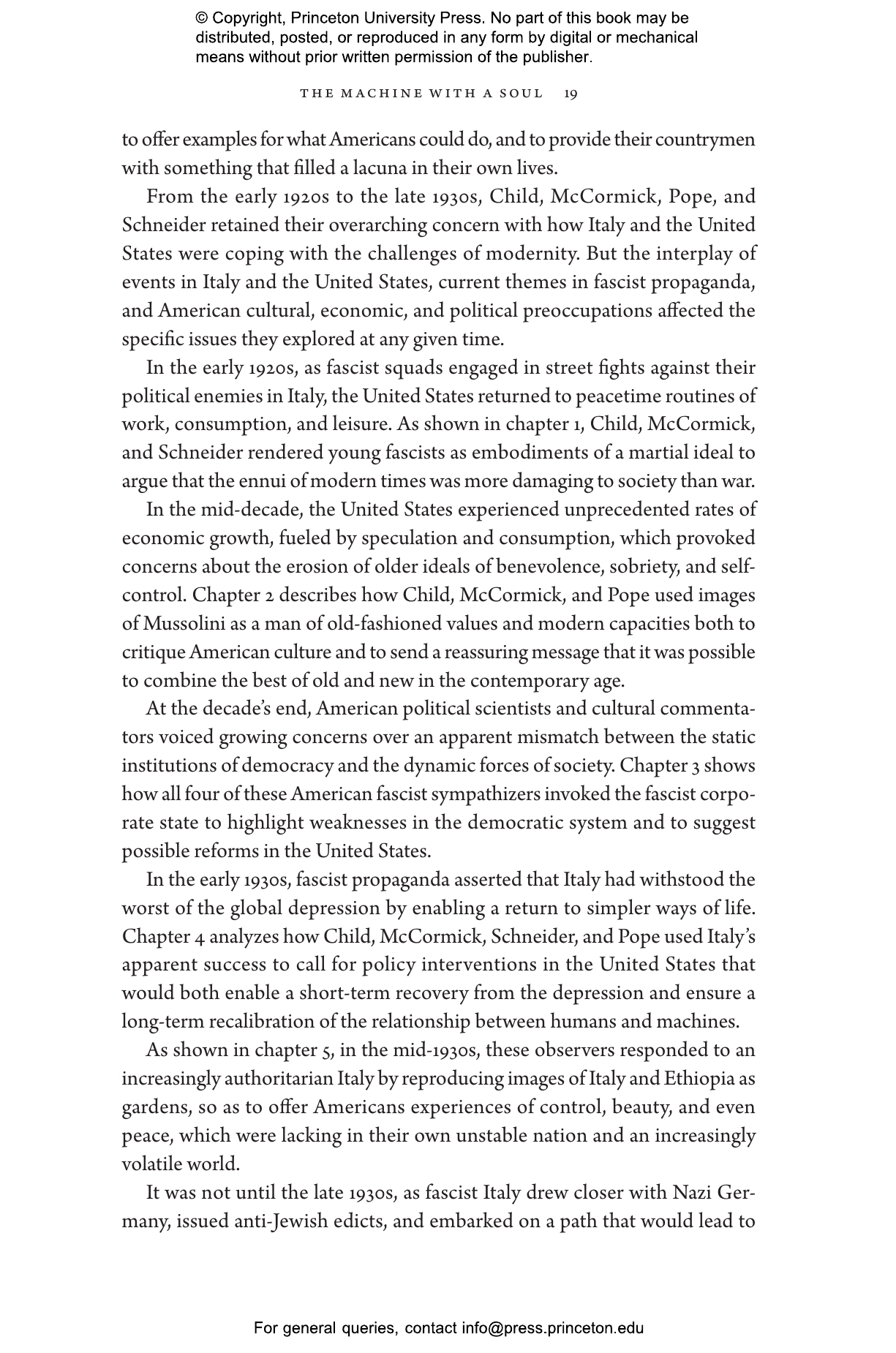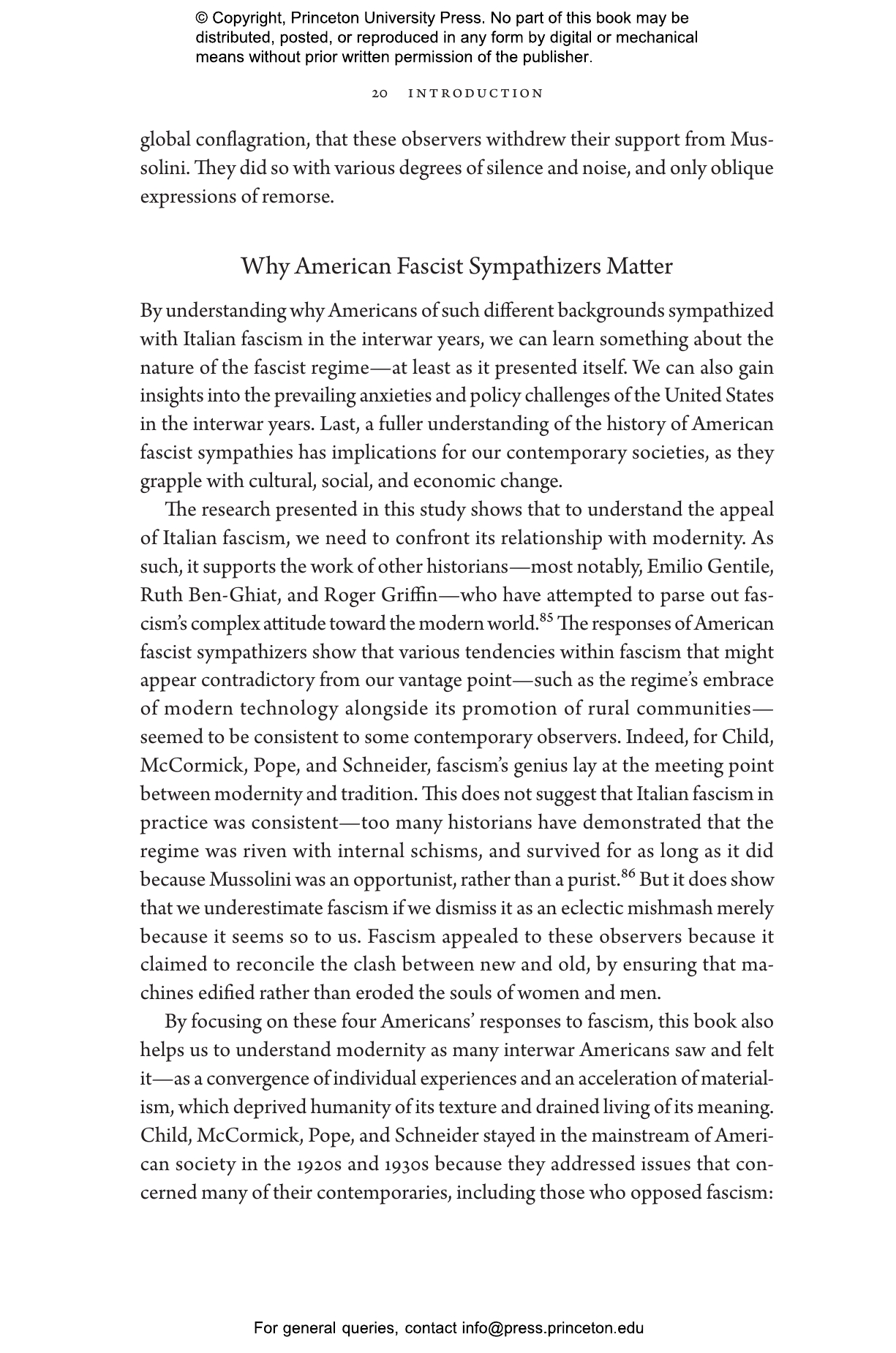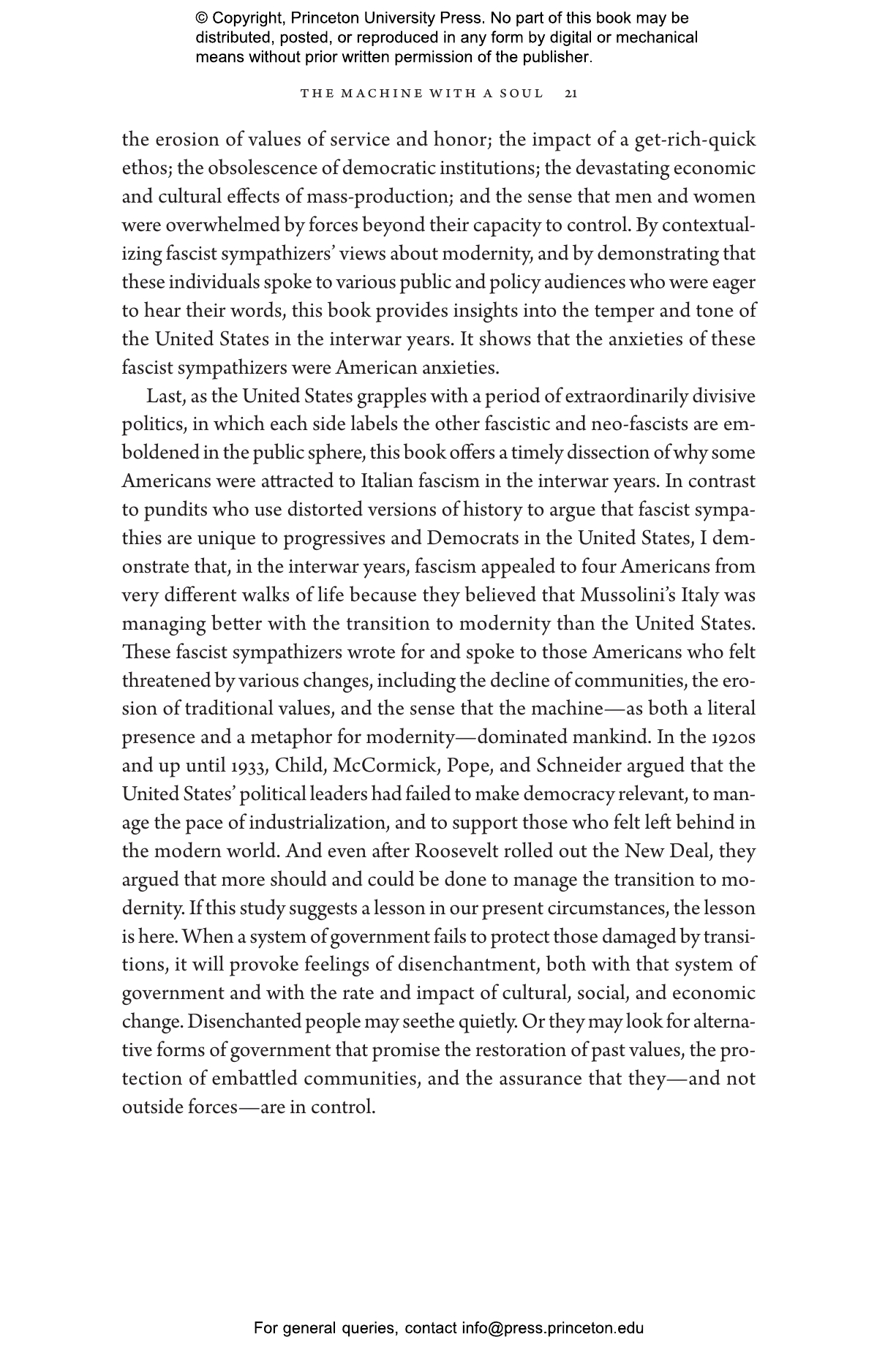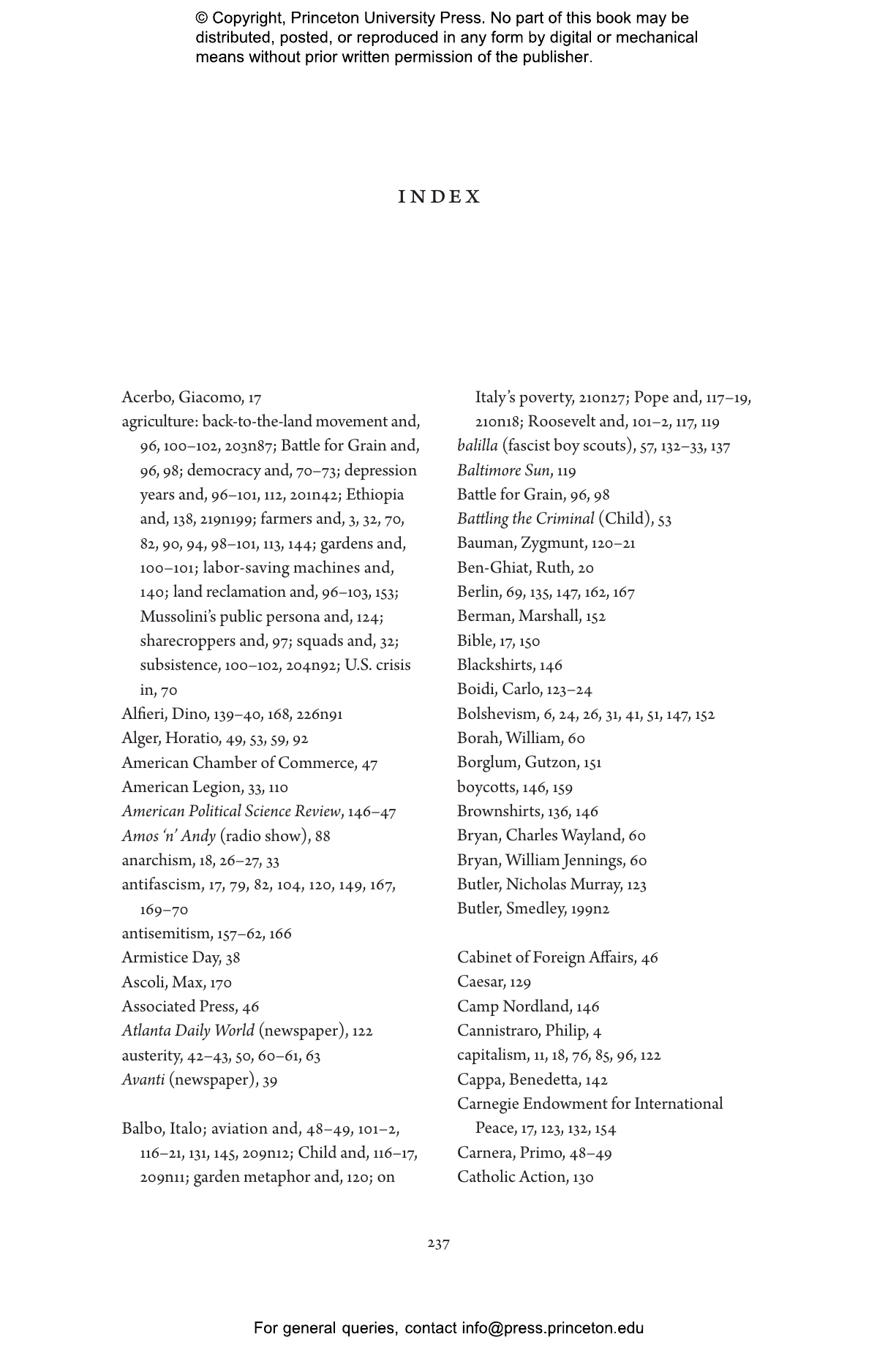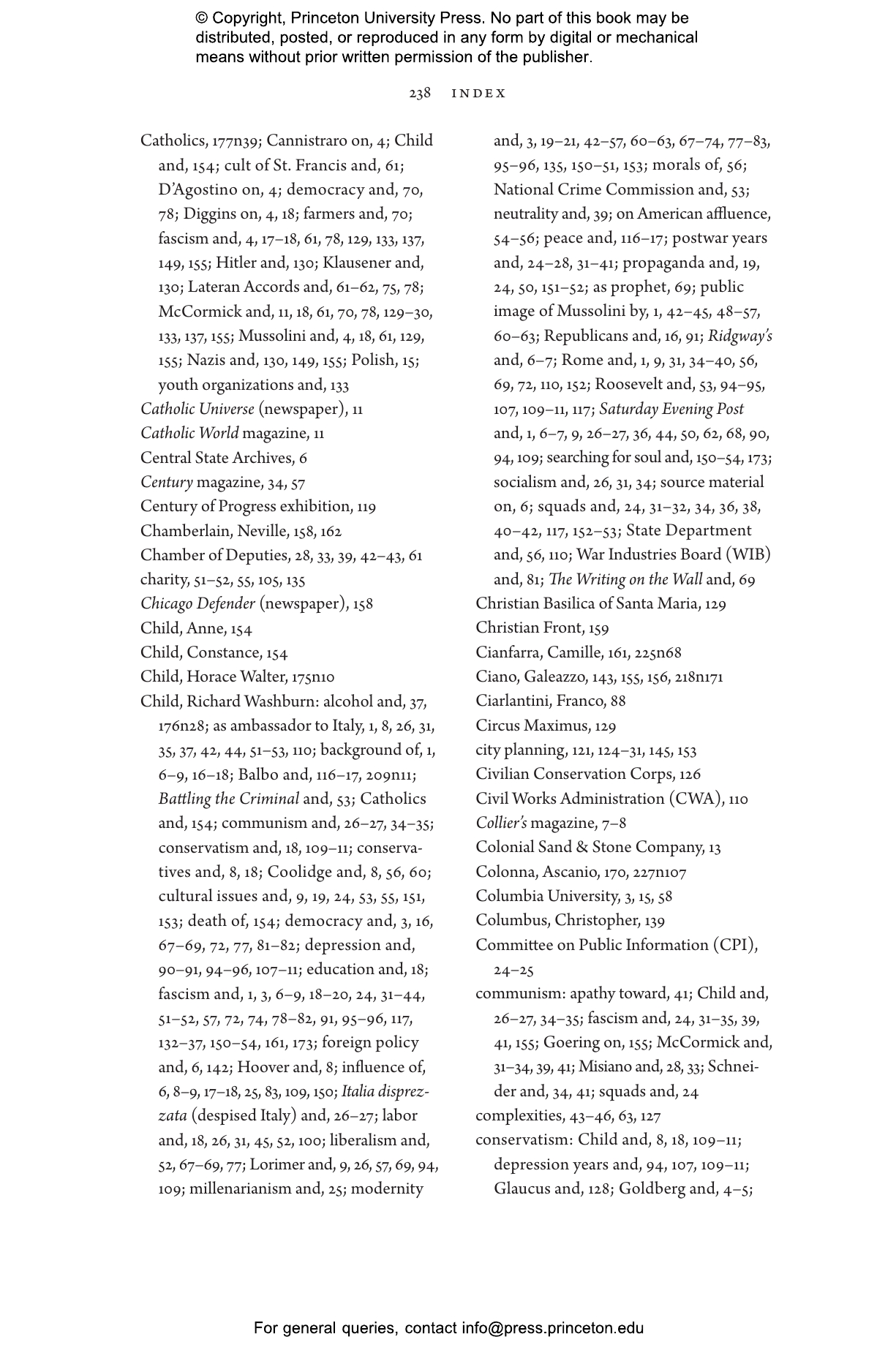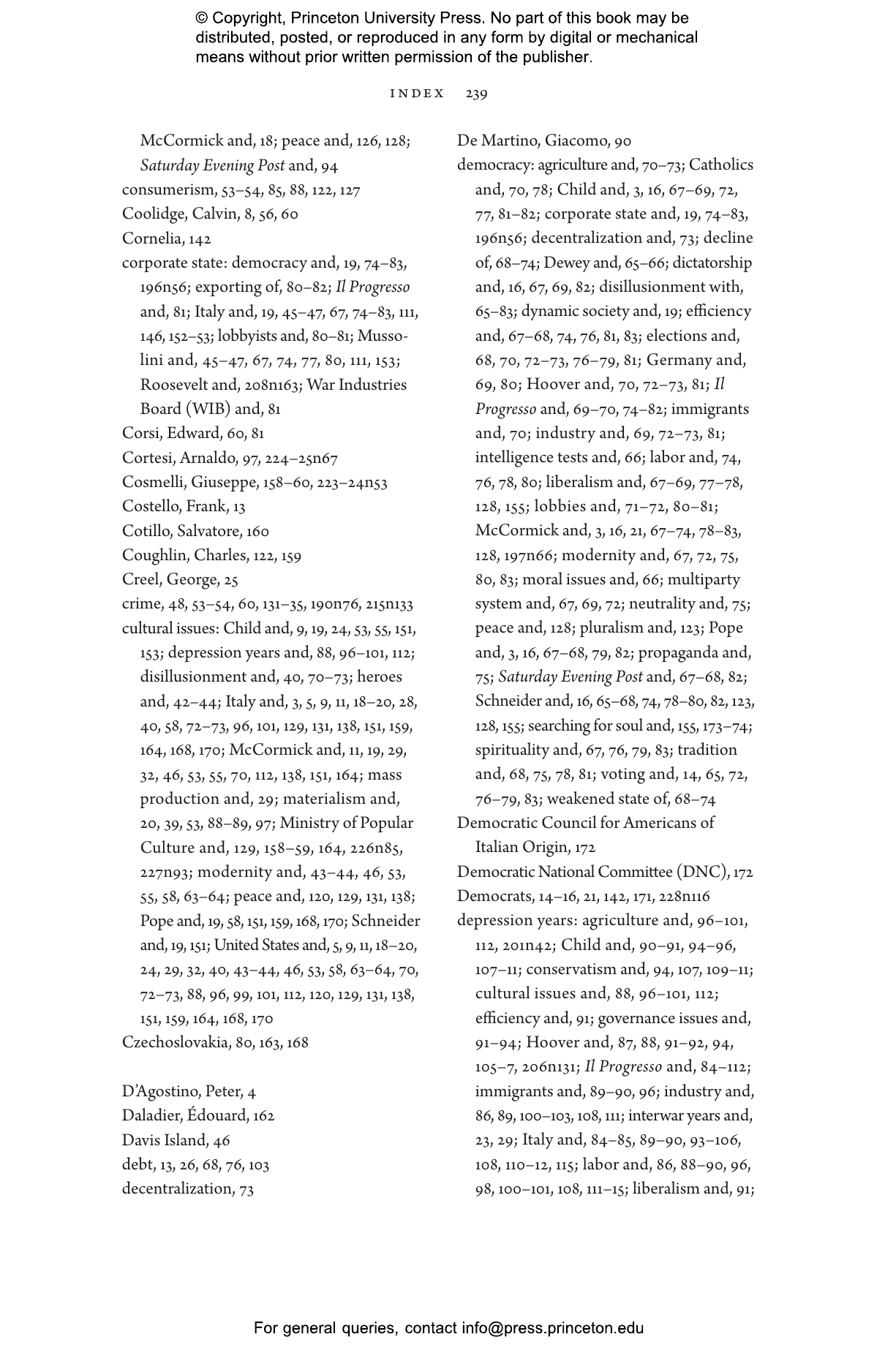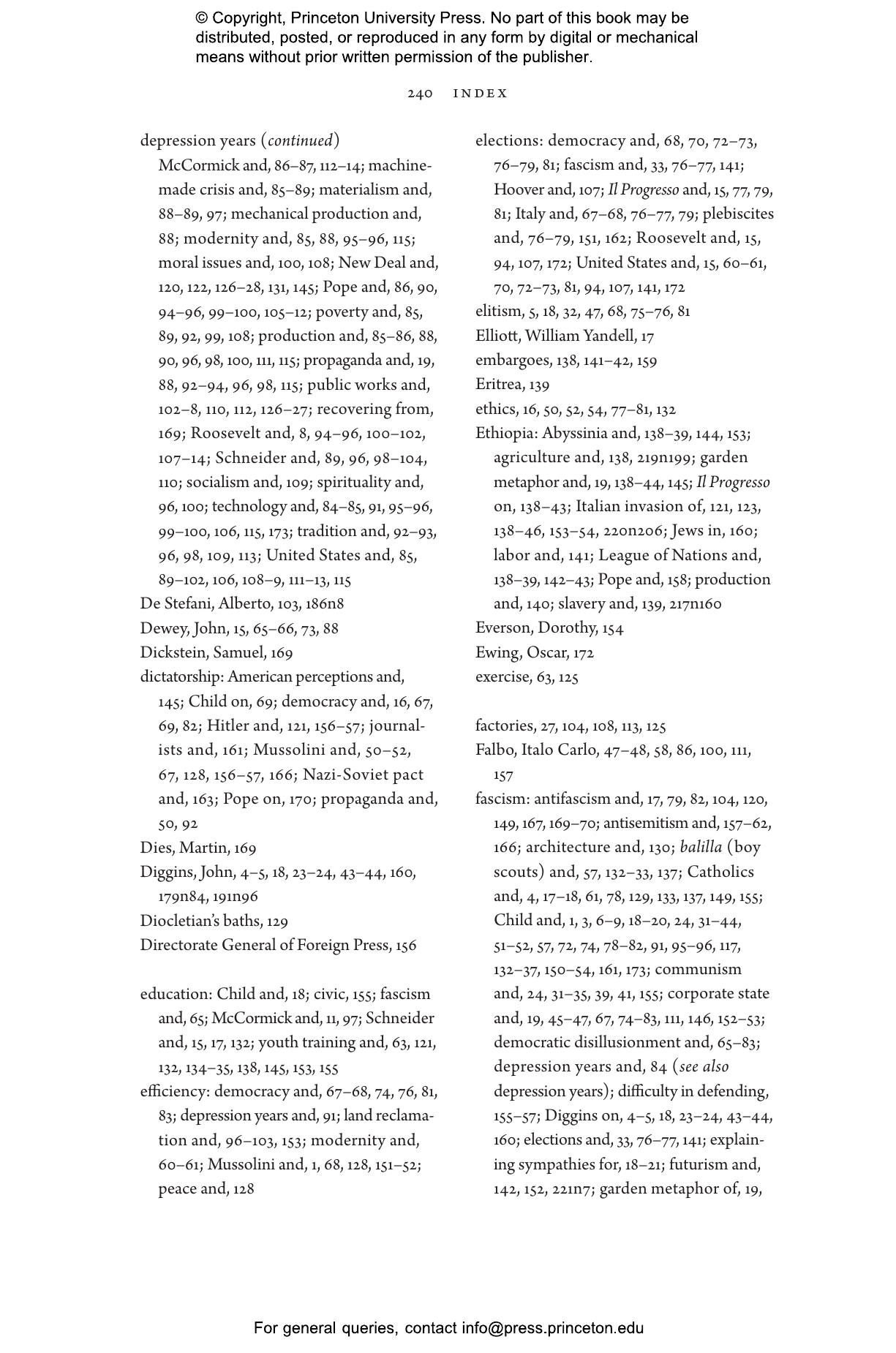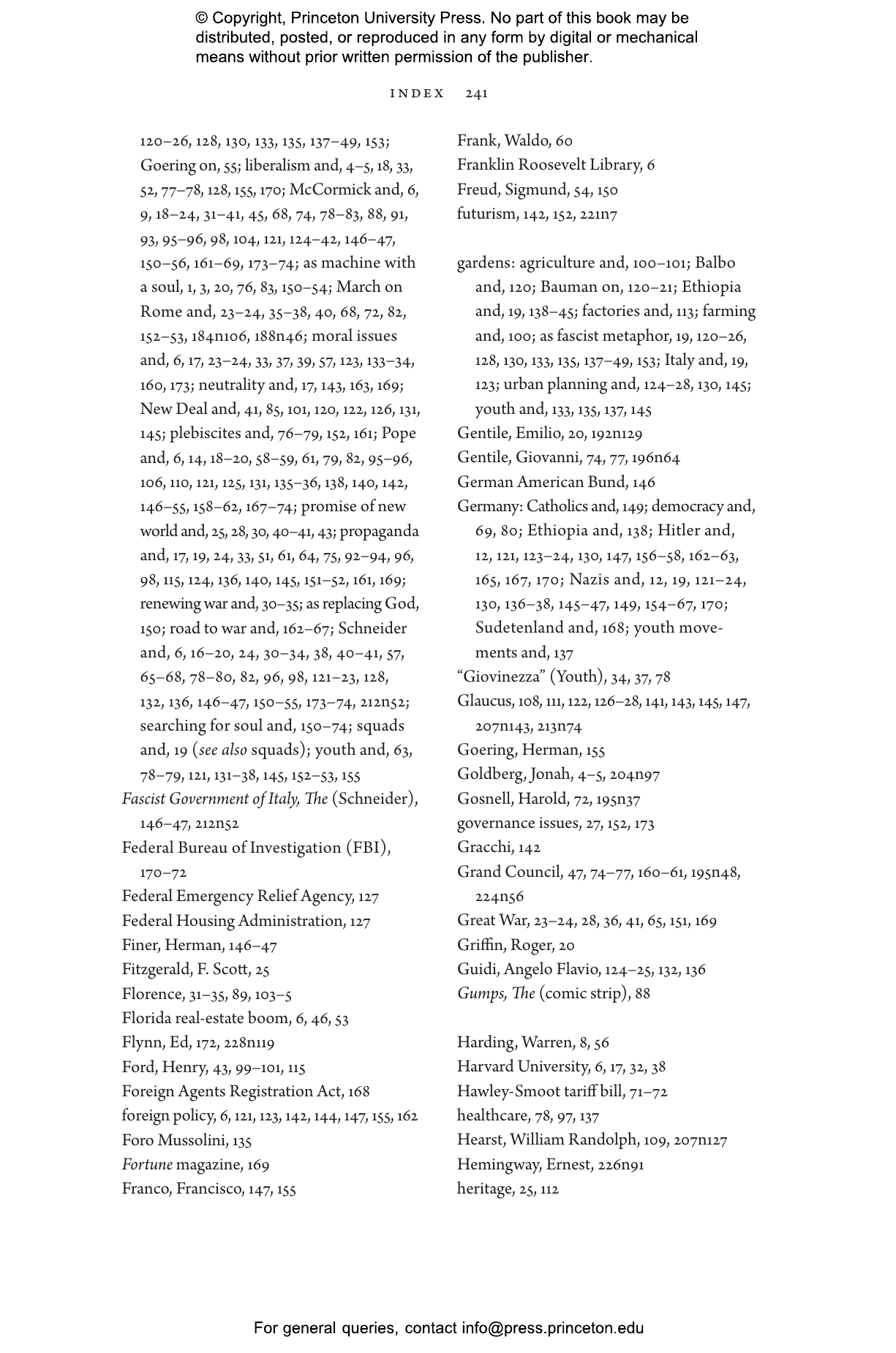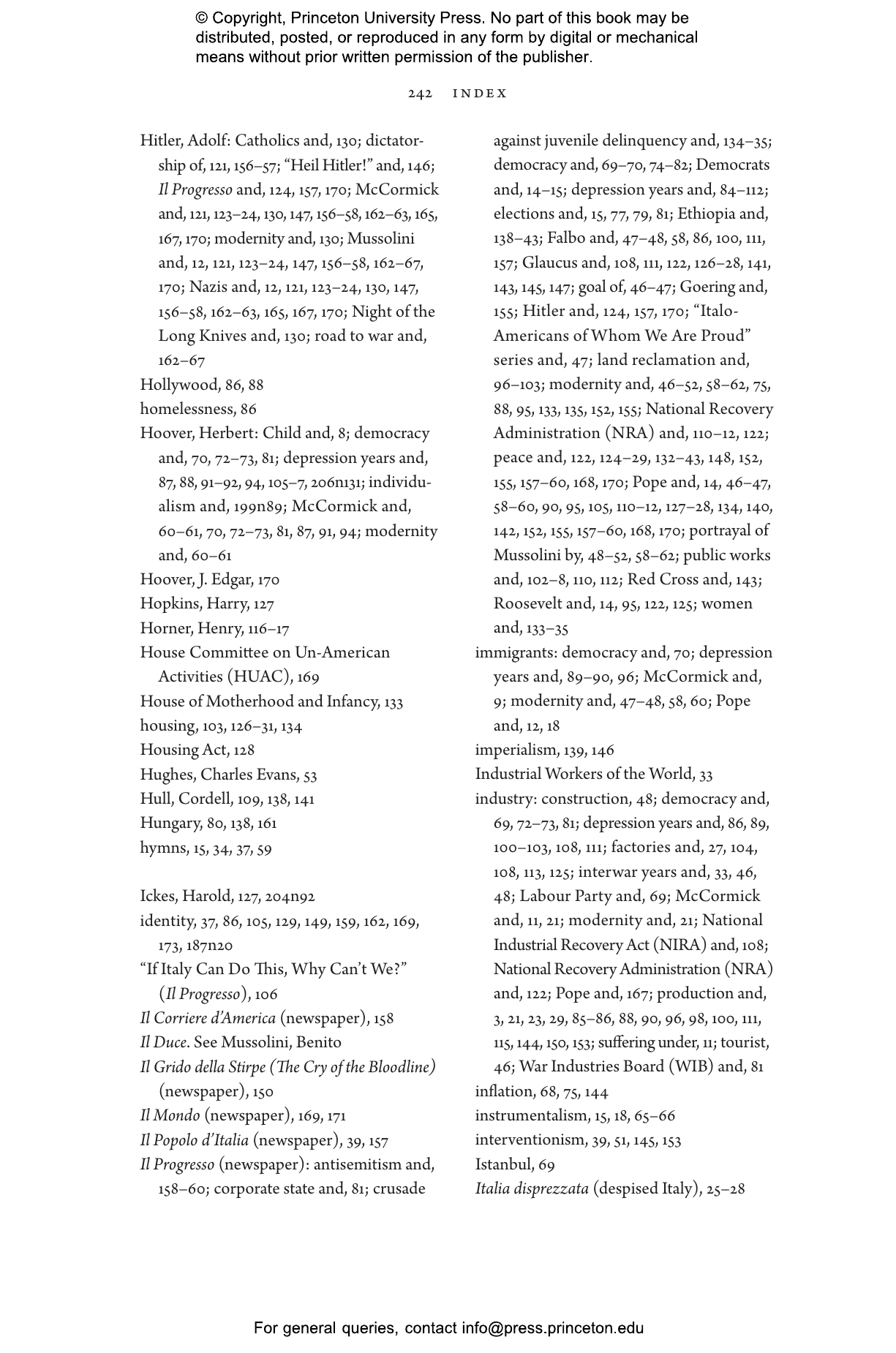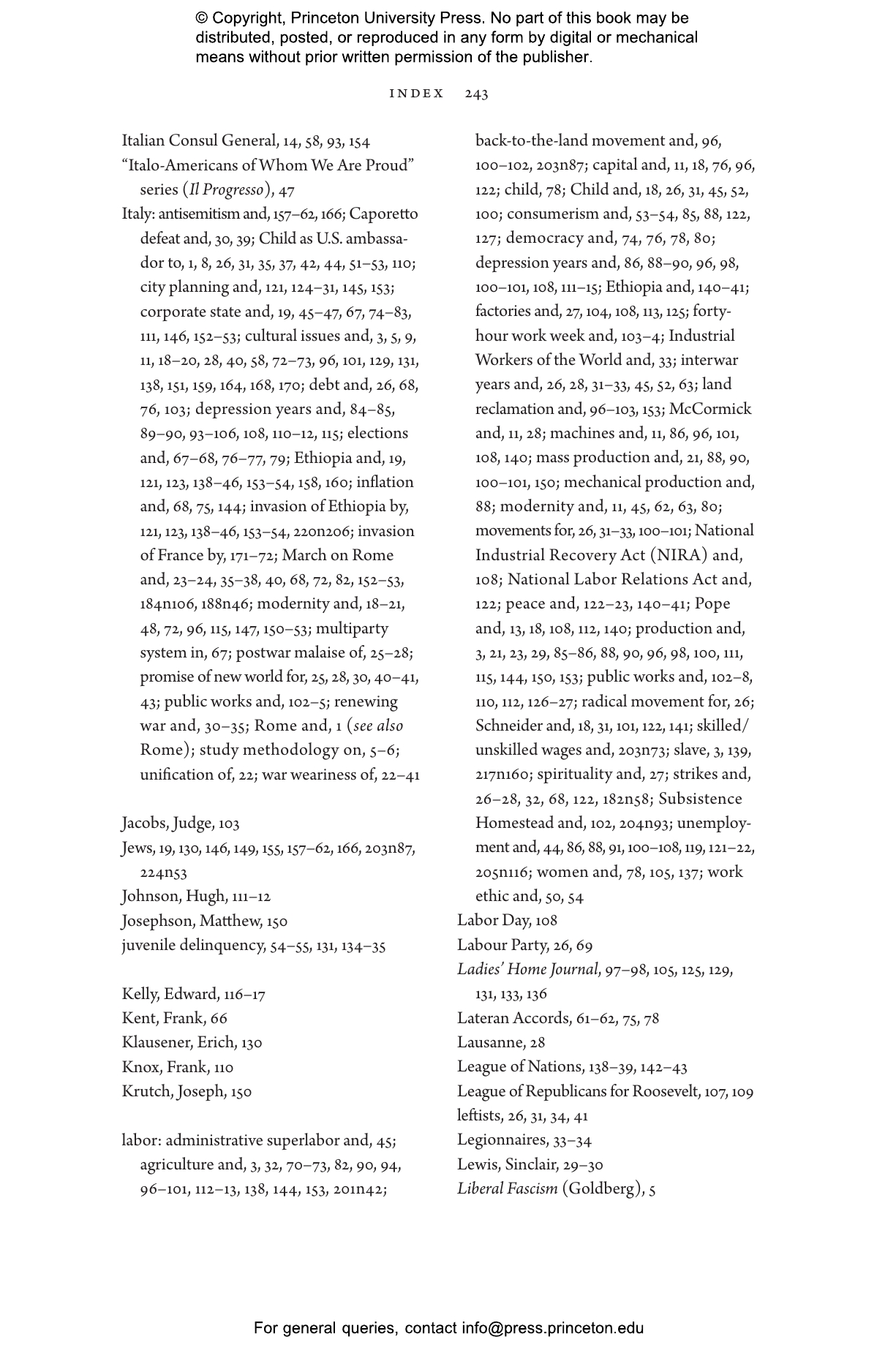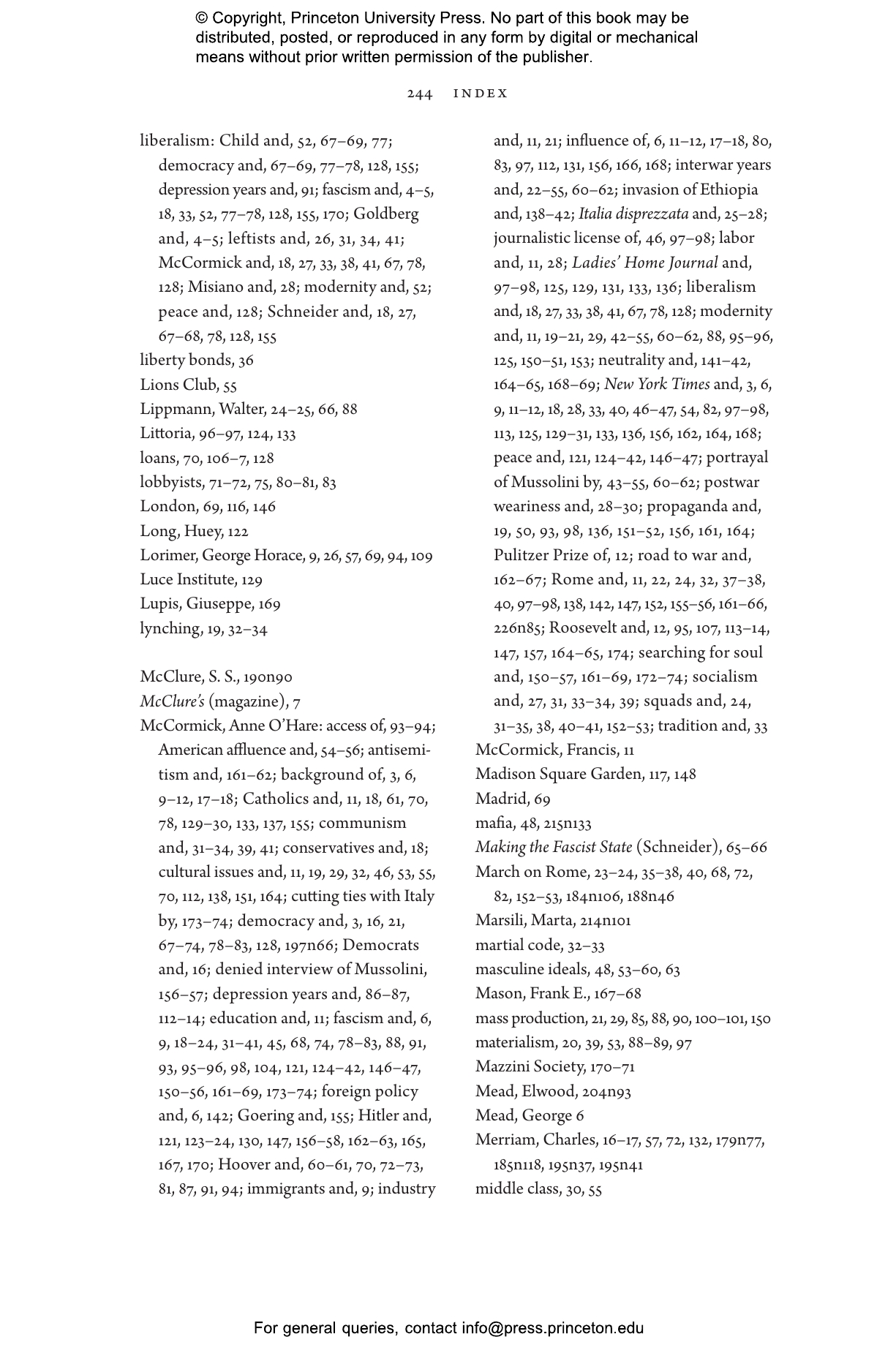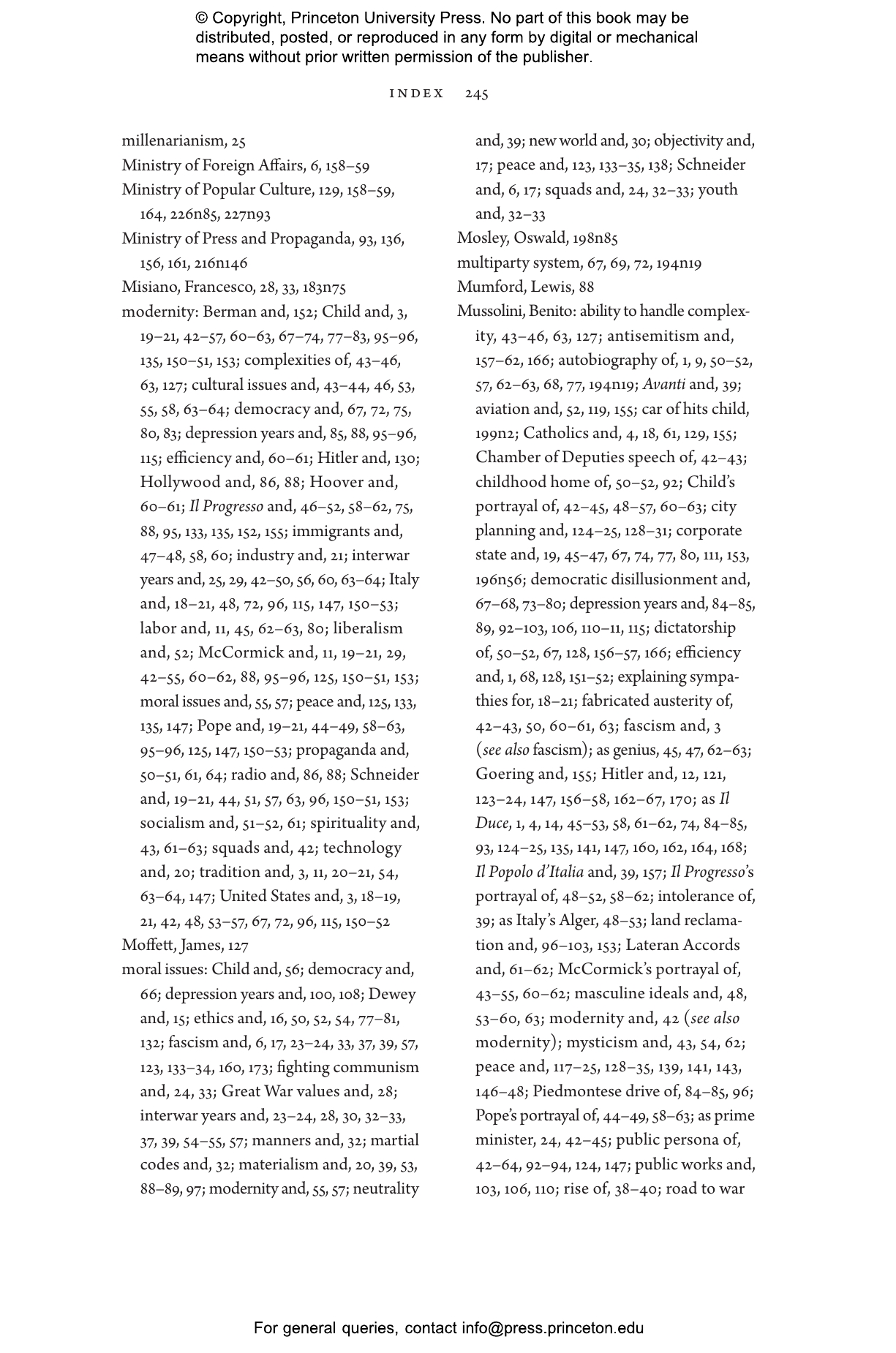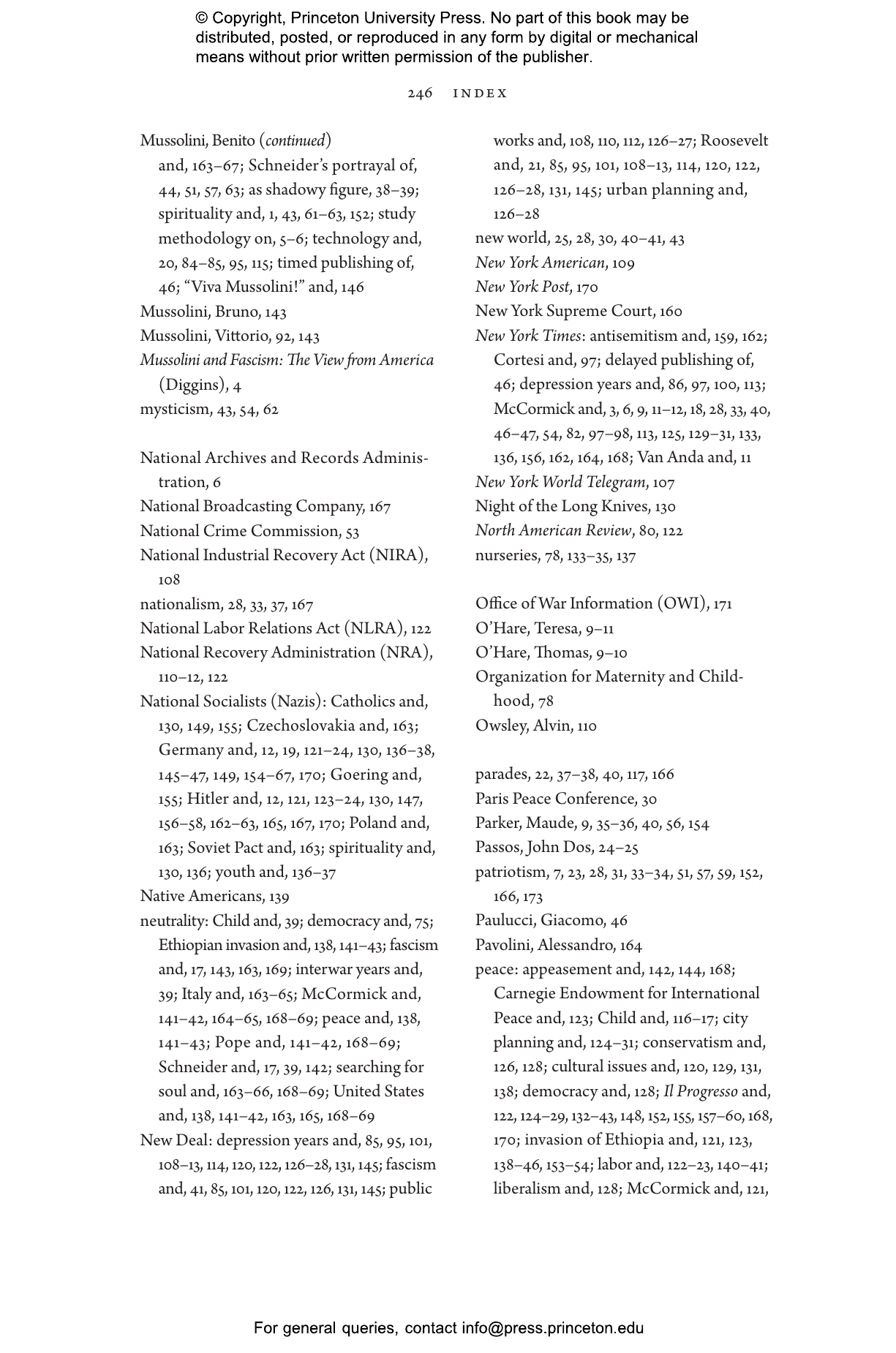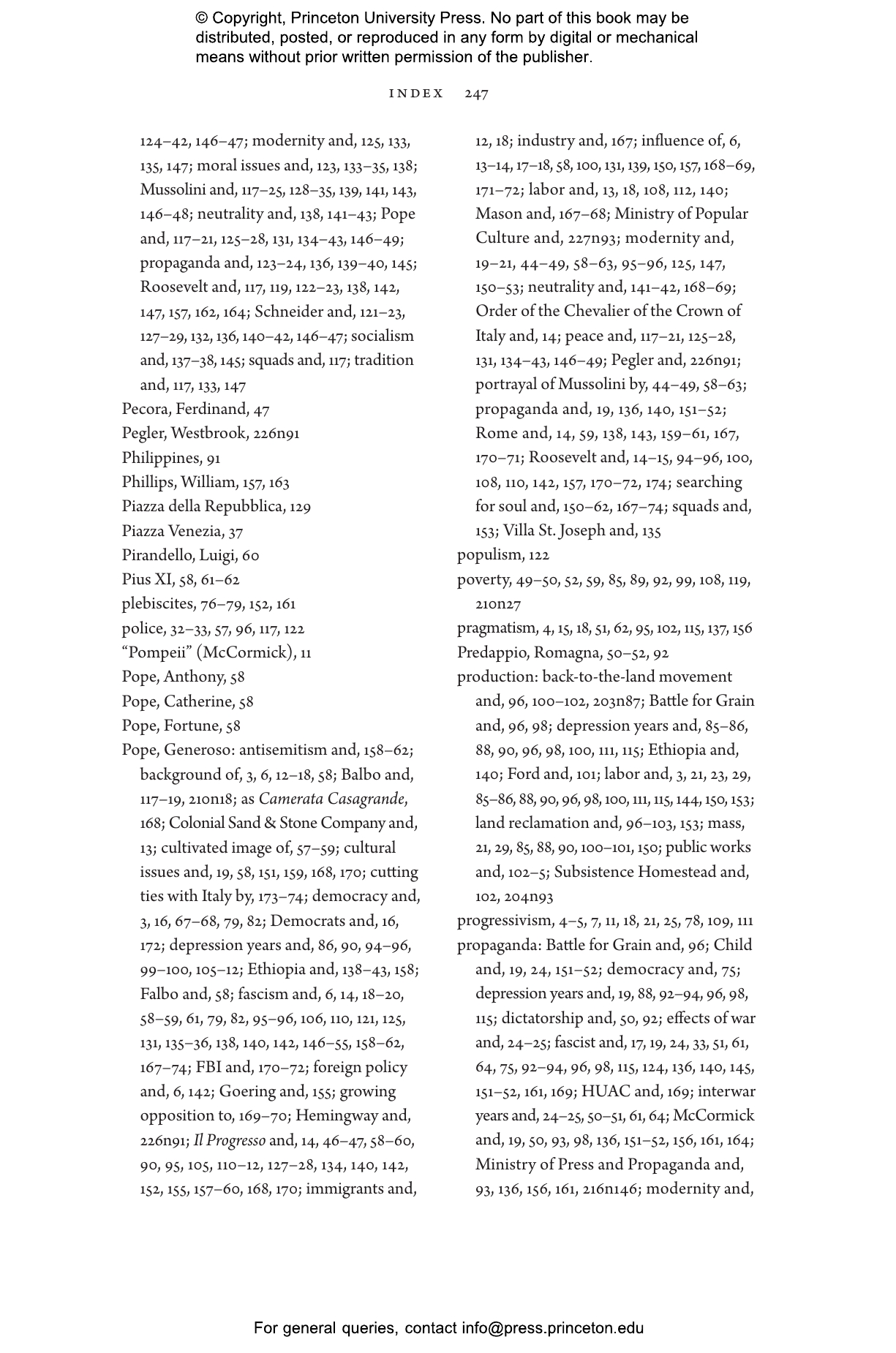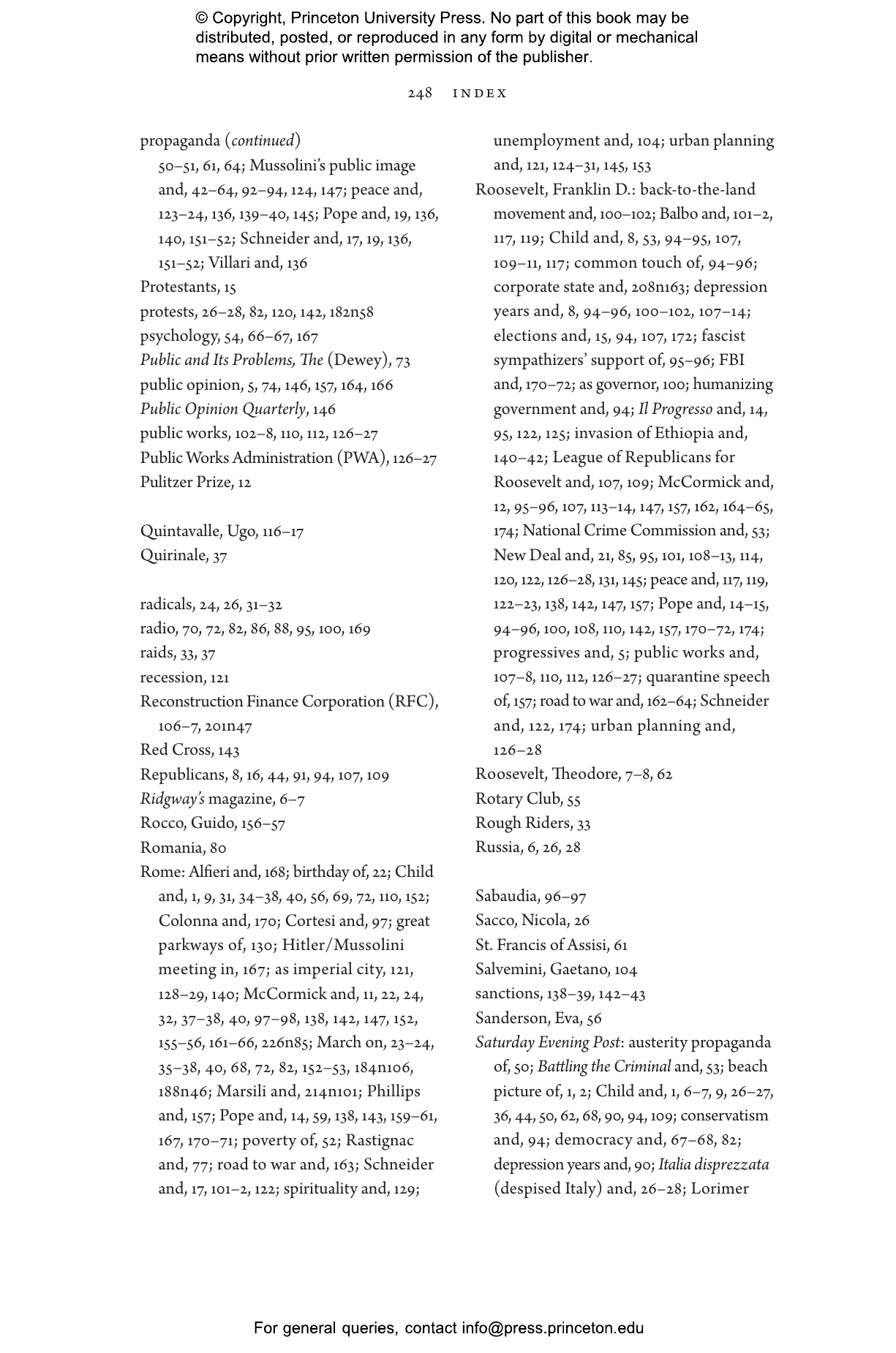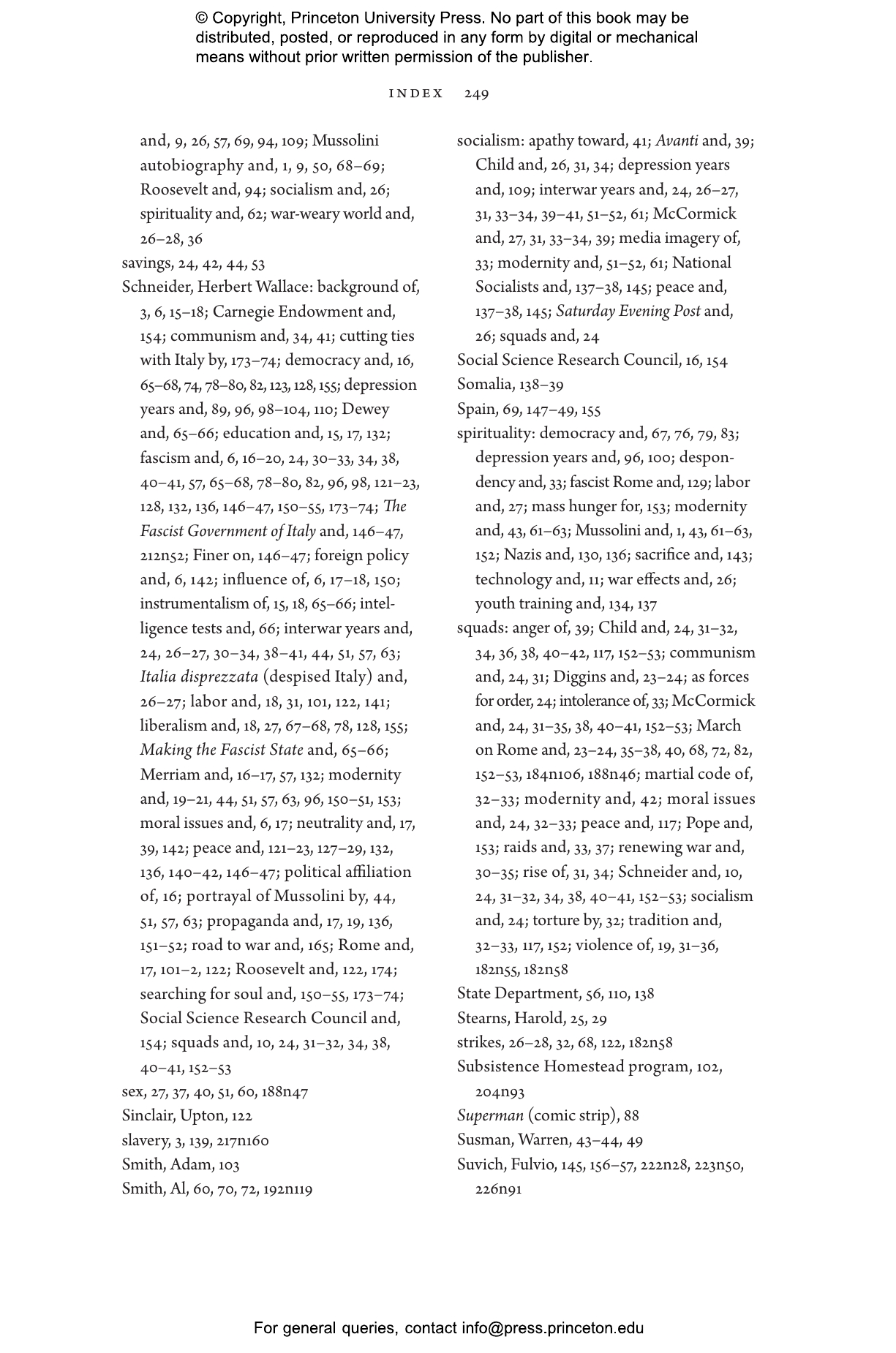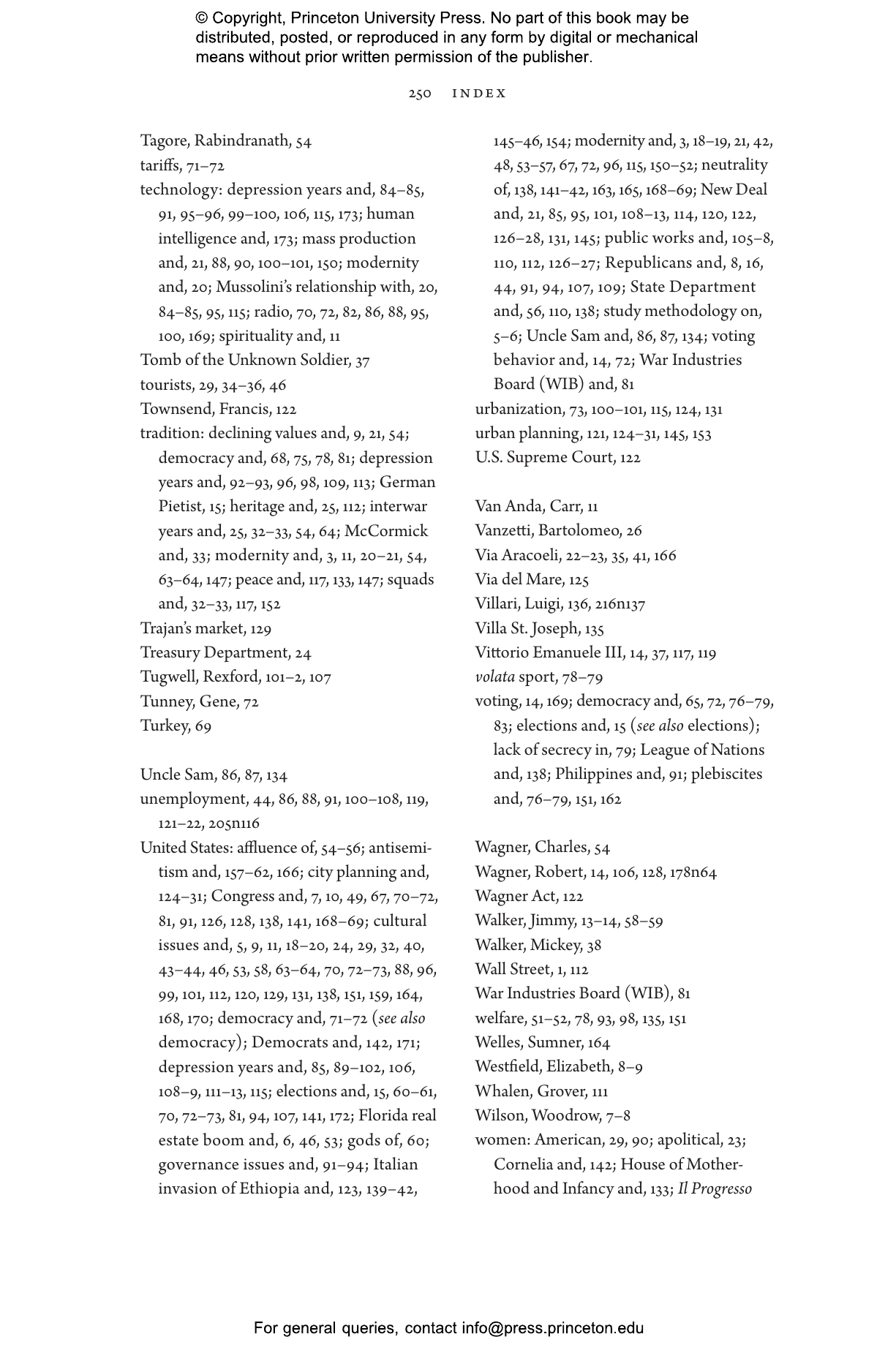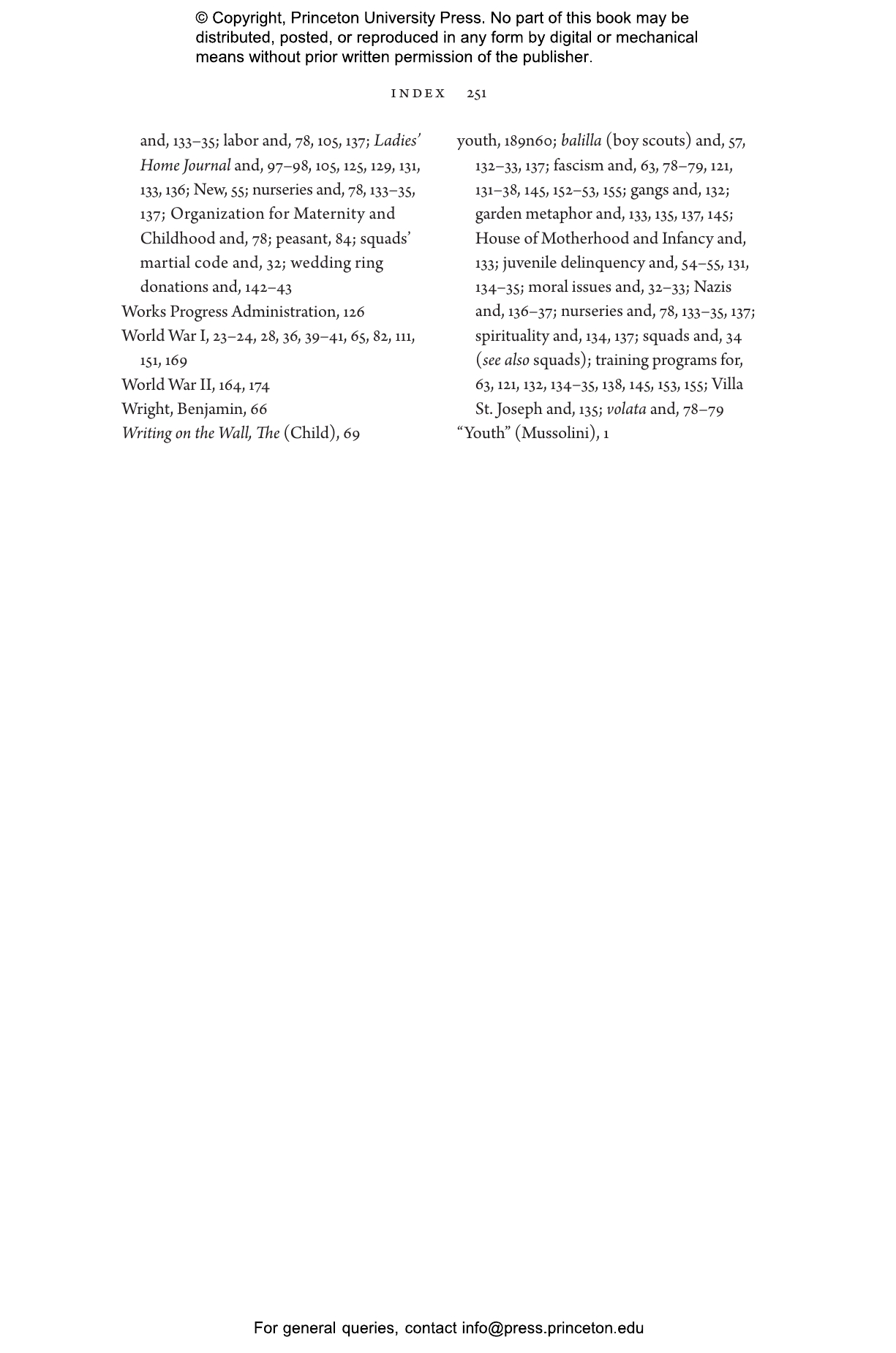In the interwar years, the United States grappled with economic volatility, and Americans expressed anxieties about a decline in moral values, the erosion of families and communities, and the decay of democracy. These issues prompted a profound ambivalence toward modernity, leading some individuals to turn to Italian fascism as a possible solution for the problems facing the country. The Machine Has a Soul delves into why Americans of all stripes sympathized with Italian fascism, and shows that fascismâs appeal rested in the image of Mussoliniâs regime as âthe machine which will run and has a soulââa seemingly efficient and technologically advanced system that upheld tradition, religion, and family.
Katy Hull focuses on four prominent American sympathizers: Richard Washburn Child, a conservative diplomat and Republican operative; Anne OâHare McCormick, a distinguished New York Times journalist; Generoso Pope, an Italian-American publisher and Democratic political broker; and Herbert Wallace Schneider, a Columbia University professor of moral philosophy. In fascismâs violent squads they saw youthful glamour and impeccable manners, in the megalomaniacal Mussolini they perceived someone both current and old-fashioned, and in the corporate state they witnessed a politics that could revive addled minds. They argued that with the right course of action, the United States could use fascism to take the best from modernity while withstanding its harmful effects.
Investigating the motivations of American fascist sympathizers, The Machine Has a Soul offers provocative lessons about authoritarianismâs appeal during times of intense cultural, social, and economic strain.
Katy Hull is lecturer in American studies at the University of Amsterdam.
"This well-written account is exhaustively researched."âChoice Reviews
"[The Machine Has a Soul’s] insights into Americans’ attitudes toward their future, its concise history of Mussolini’s popularity in America, and its unsparing critique of the myths of Fascist propaganda make it an important and timely contribution to both scholarship on Fascism and to broader investigations of American political, intellectual, and ethnic history."âJessica H. Lee, Italian American Review
"Katy Hull’s excellent book about American sympathy for Italian fascism arrives with an uncanny sense of timing. . . . [Her] work poignantly reminds us that fascist apologists have long flourished in the United States, and they still do."âWilliam I. Hitchcock, Diplomatic History
"Beautifully conceived and elegantly written, The Machine Has a Soul takes a deep dive into interwar Americaâs quest for political regeneration. Fascismâs enticing proposal to trade individual freedom for social justice and inclusion took root in a country that faced disillusionment, alienation, and creeping economic depression. Hullâs landmark book resonates today as a powerful reminder of the importance of cultivating strong democratic antibodies, especially in times of crisis."âDario Fazzi, Roosevelt Institute for American Studies
"Briskly written and meticulously researched, The Machine Has a Soul makes an important contribution to American intellectual history during the interwar period, and to the study of relations between Italy and the United States."âJohn L. Harper, author of The Cold War
"In this excellent book, Hull, an astute reader of texts and an outstanding writer, has consulted an enormous array of primary sources. Her first-rate work reveals much about American culture and US attitudes toward fascism."âBruce Kuklick, author of A Political History of the USA
"Combining profound scholarship with an accessible and appealing style, this book is a pleasure to read, despite its forbidding subject. Hull shows how fascist sympathies enabled her four protagonists to get ahead in their careers in the United States in the 1930s, and the excuses they made for Mussolini's excesses, before eventually recognizing his abnegation of American values and interests. A finely observed, forthright analysis of the fallacies of appeasement in the United States."âMichael Leigh, Johns Hopkins University



